Sustainability Report 2024
SONNEDIX POWER
HOLDINGS LIMITED




HOLDINGS LIMITED




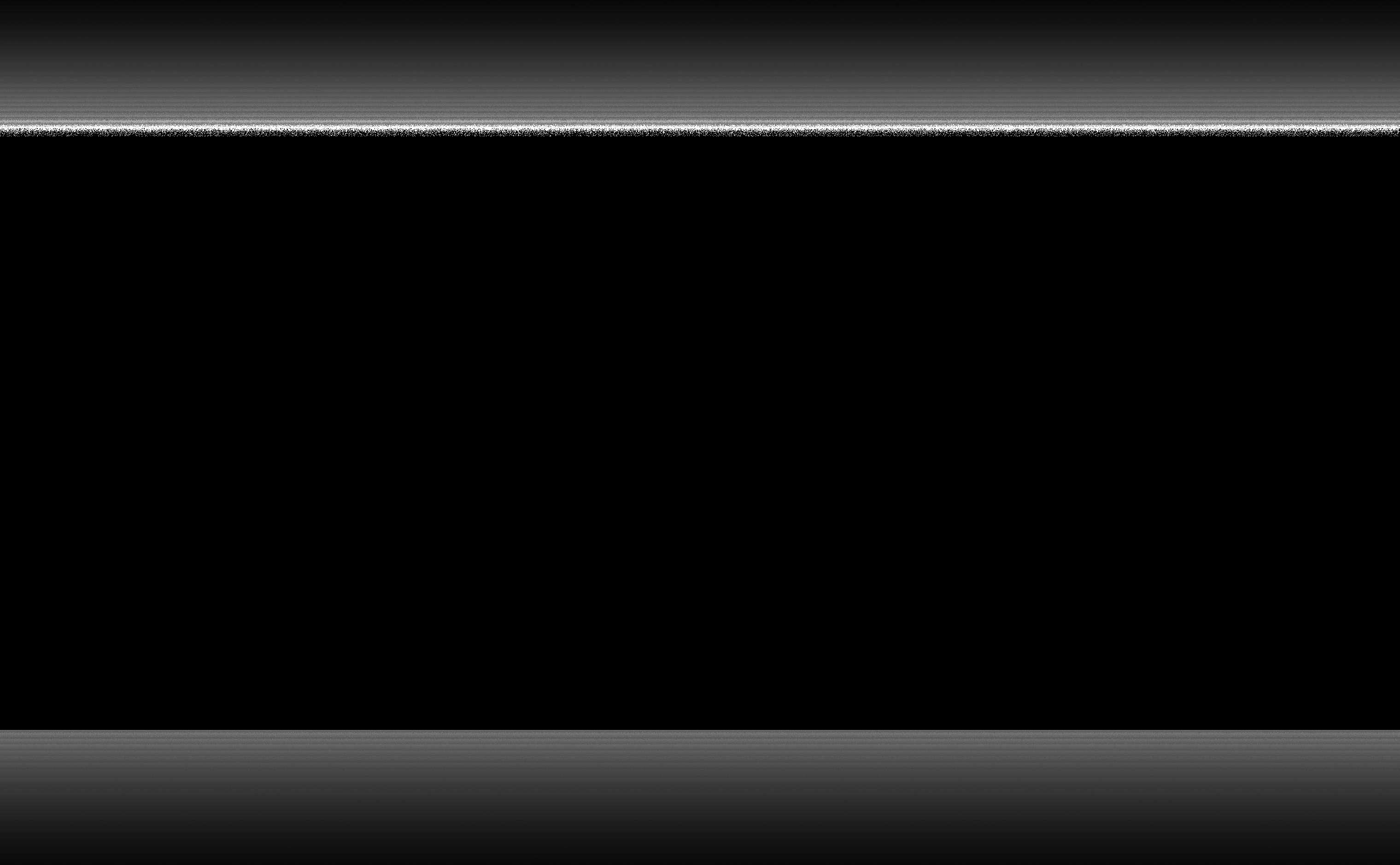
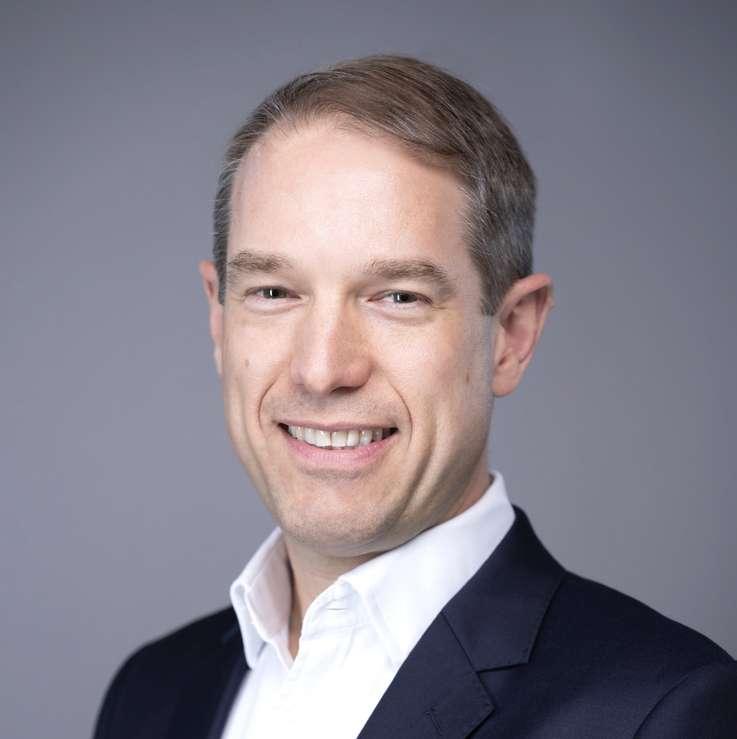
“2024 was a year of great financial performance. At Sonnedix, it’s not just about the numbers, but also about the delivery, with acting as a responsible business central to our approach.”
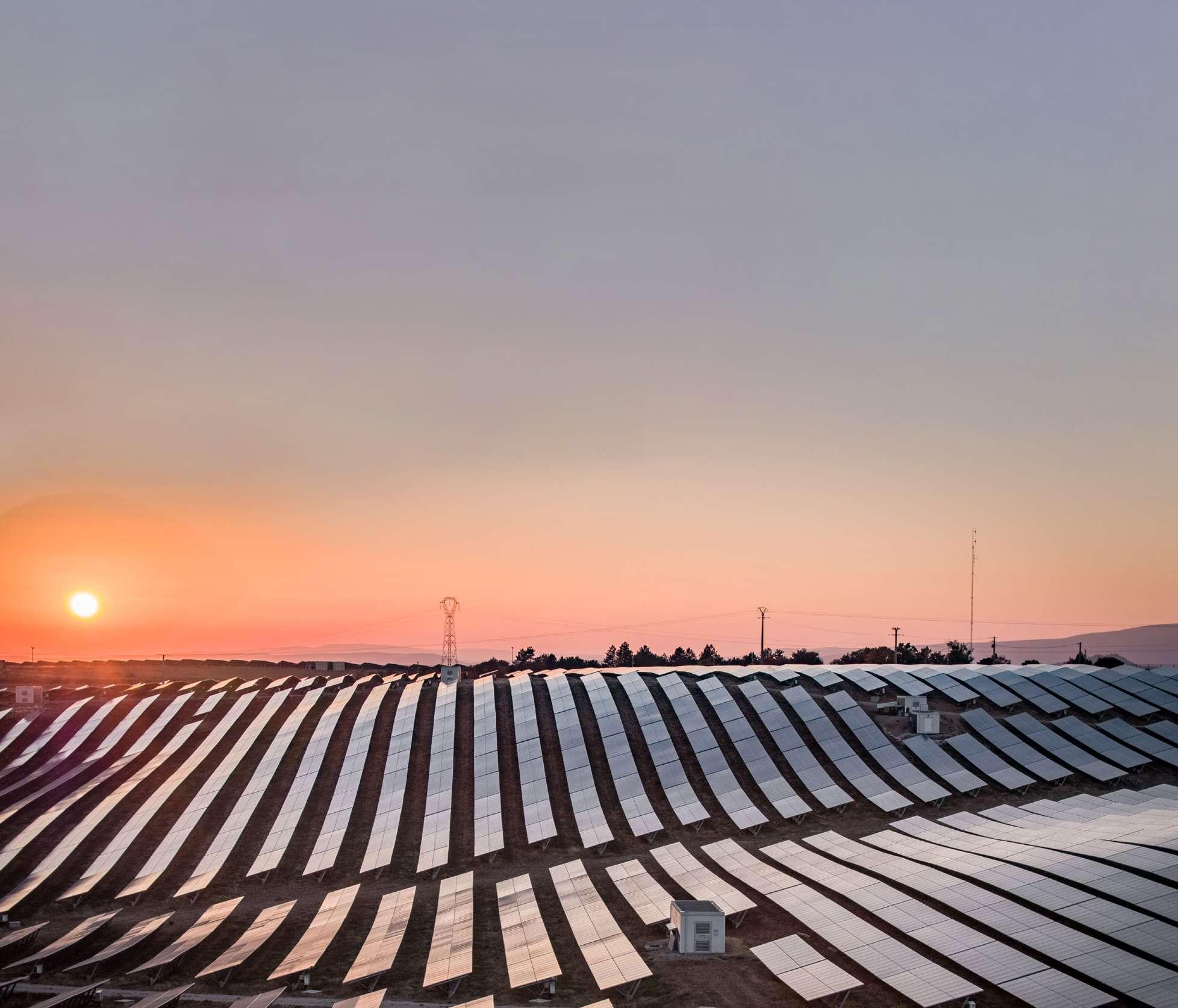
2024 marked a big moment for Sonnedix. With over 15 years under our belt, we have taken our business from 2MW in 2009 to a truly global force for change with over 10GW of total capacity, including 7.3GW under development or construction. We maintained our 5* GRESB rating for the seventh year, won the Environmental Sustainability Initiative of the Year award and were named Gold Solar Diversity Champion by Solar Power Europe. Our accolades speak to what others think about us, but also to how we operate as a business.
If the last few years have taught us anything, it’s that disruption is here to stay. From market instability and interest rate changes, to supply chain demands and geopolitical uncertainty, we are being forced to flex and pivot quicker than ever before, and it shows no sign of slowing down.
To embrace this volatility, we began hybridising our business back in 2022, with a focus on Battery Energy Storage Systems (BESS). By the end of 2024, we had over 1.5 GW in the BESS pipeline, with sizeable construction plans for 2025.
Our people have been integral to navigating change and continue to be a key differentiator for us as a business, which is why keeping them safe and supporting their wellbeing is one of our top priorities. With the growth of the company has come a renewed focus on embedding our health and safety culture, with new incident reporting mechanisms for 2025. As well as supporting our people’s wellbeing, we also put great emphasis on supporting their development. One of our key
beliefs is that we are one company with many careers, and with 20% of our workforce being promoted or changing role in 2024, we are seeing first hand that our focus on personal development and learning is paying off.
Digital improvements elsewhere in the business were also a key part of our year this year, with the full integration of SAP S/4HANA and the new Computerised Maintenance Management System (CMMS) for the capture of asset information and other non-financial key information. All of which are a part of our broader digitalisation focus which we’re continuing to embed in 2025.
2024 was also a turning point for us financially, with landmark refinancing deals totalling €3.25 billion in Europe. The transactions were the largest and most innovative refinancings in our history and demonstrate the market’s confidence in our business model and long-term focus. Sustainability-linked criteria forms part of these financings, aligning borrowing practices with our commitment to sustainable growth.
I’m delighted at the message that this sends to our customers - that our financial strategy links directly to our sustainability ambitions. I’m also excited about the opportunities the transactions give us to deliver our power marketing and hybridisation strategies that mark the next phase of growth for the business. These financings ultimately position us to better address the evolving needs of our customers for clean, reliable and affordable energy.
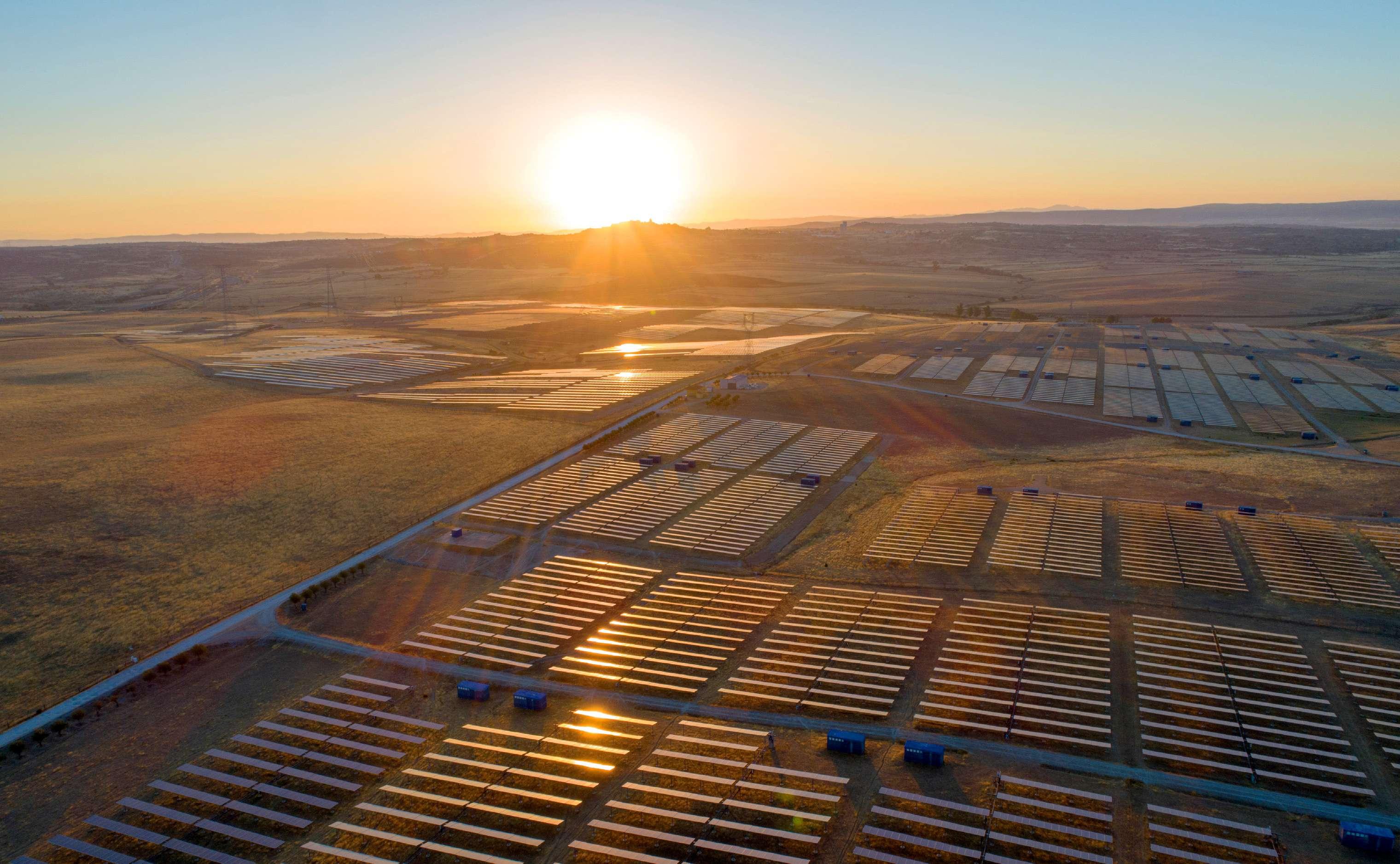
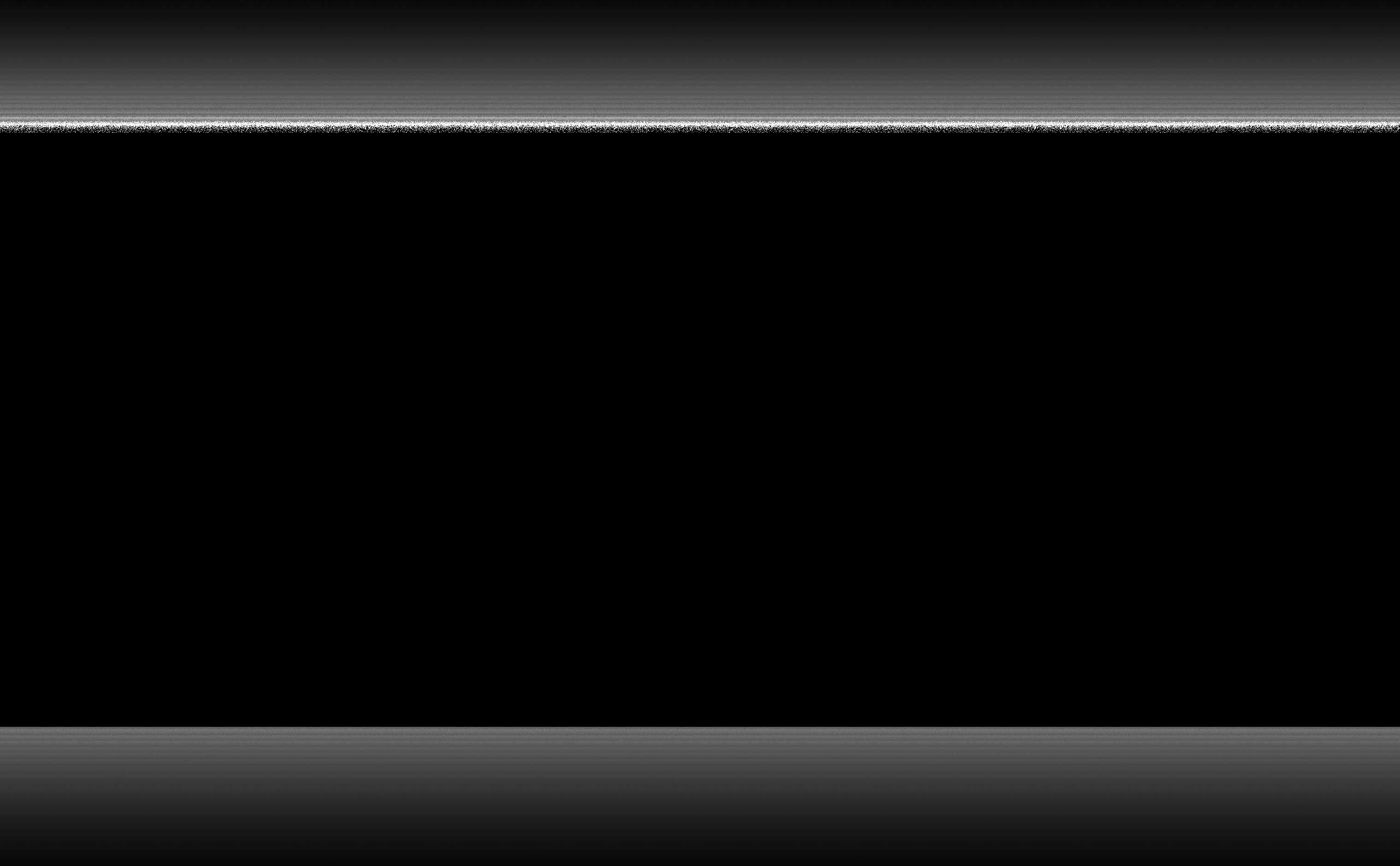
Established in 2009, we are an international renewable energy producer with over a decadelong trajectory of sustainable growth. We develop, build and operate renewable energy projects for the long term, with a focus on delivering a continuous, reliable and efficient supply of green and affordable electricity to our customers and the communities in which we operate.
The Group is majority owned by institutional investors, attesting to our company’s stability, value and long-term potential.
We have over 500 renewable energy projects in operation, under construction or in development in 10 countries: Chile, France, Germany, Italy, Japan, Poland, Portugal, Spain, UK and USA.
By the end of 2024, our team consisted of 592 (2023: 550) people, including executive directors, employees, contractors and employees of our trusted Japanese development partner, Sonnedix Japan K.K.
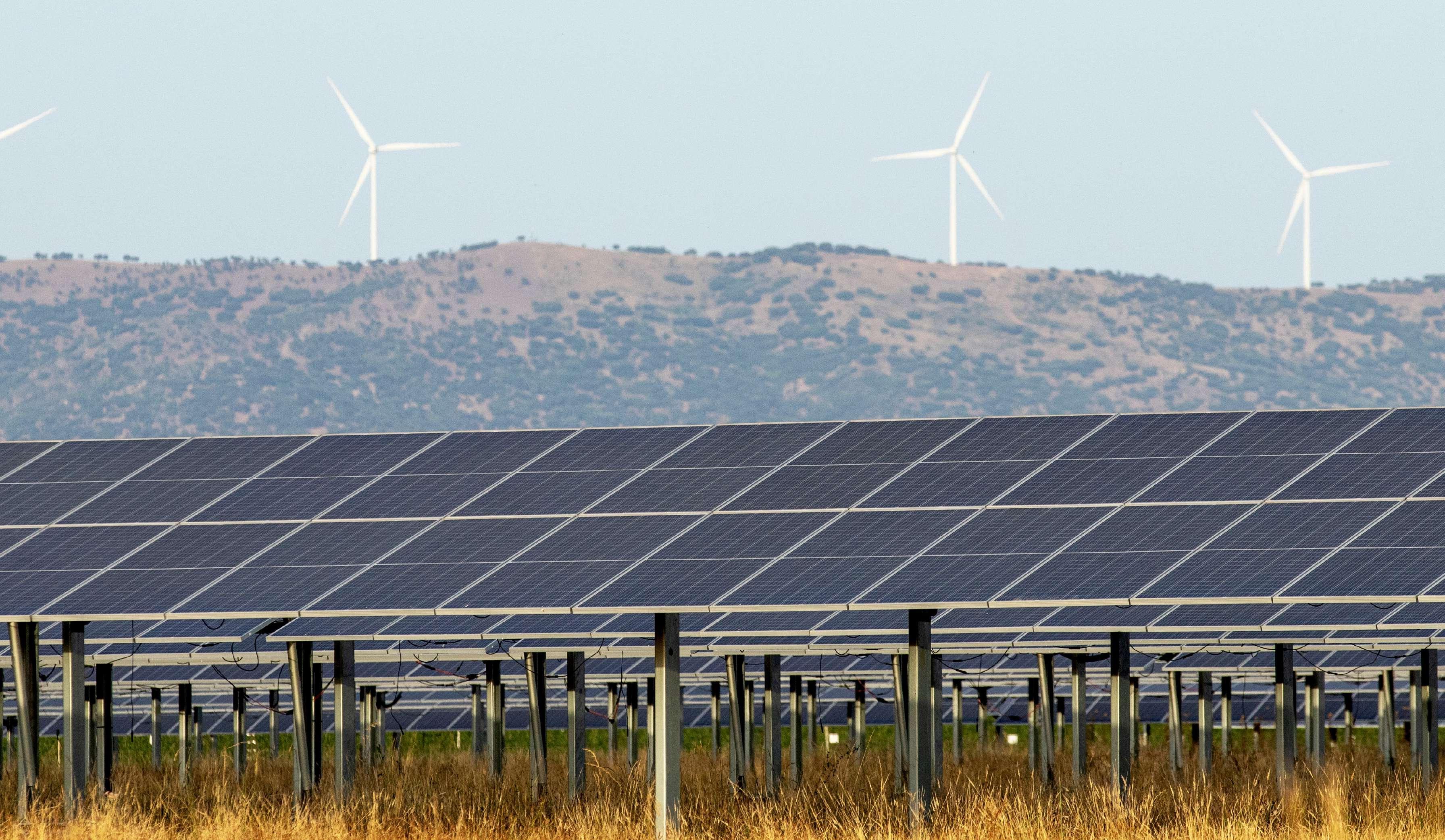
At Sonnedix, we work towards a shared purpose: to power a bright future. Renewable energy’s potential to transform daily life is what drives us to build longterm partnerships to deliver a continuous, reliable and efficient supply of clean electricity to our communities.
Underpinning our purpose are the Sonnedix values which, together with our behaviours, promote an environment that enables Sonnedix to continue to grow and scale in a sustainable way.
We believe in renewable energy’s potential to transform daily life, and work on building long-term partnerships with companies and customers who share our commitment to create a future led by clean energy. The value chain below explemlifies our current operational model.
Manufacturing of components
Transportation of goods & services
Extraction of raw materials Sonnedix
Development of sites
Energy customers Construction
Operation and maintenance of sites
Mergers and acquisitions
Energy brokerage and/or electricity market operators
Downstream (in)direct suppliers
End-of-life disposal, reuse and/or recycling
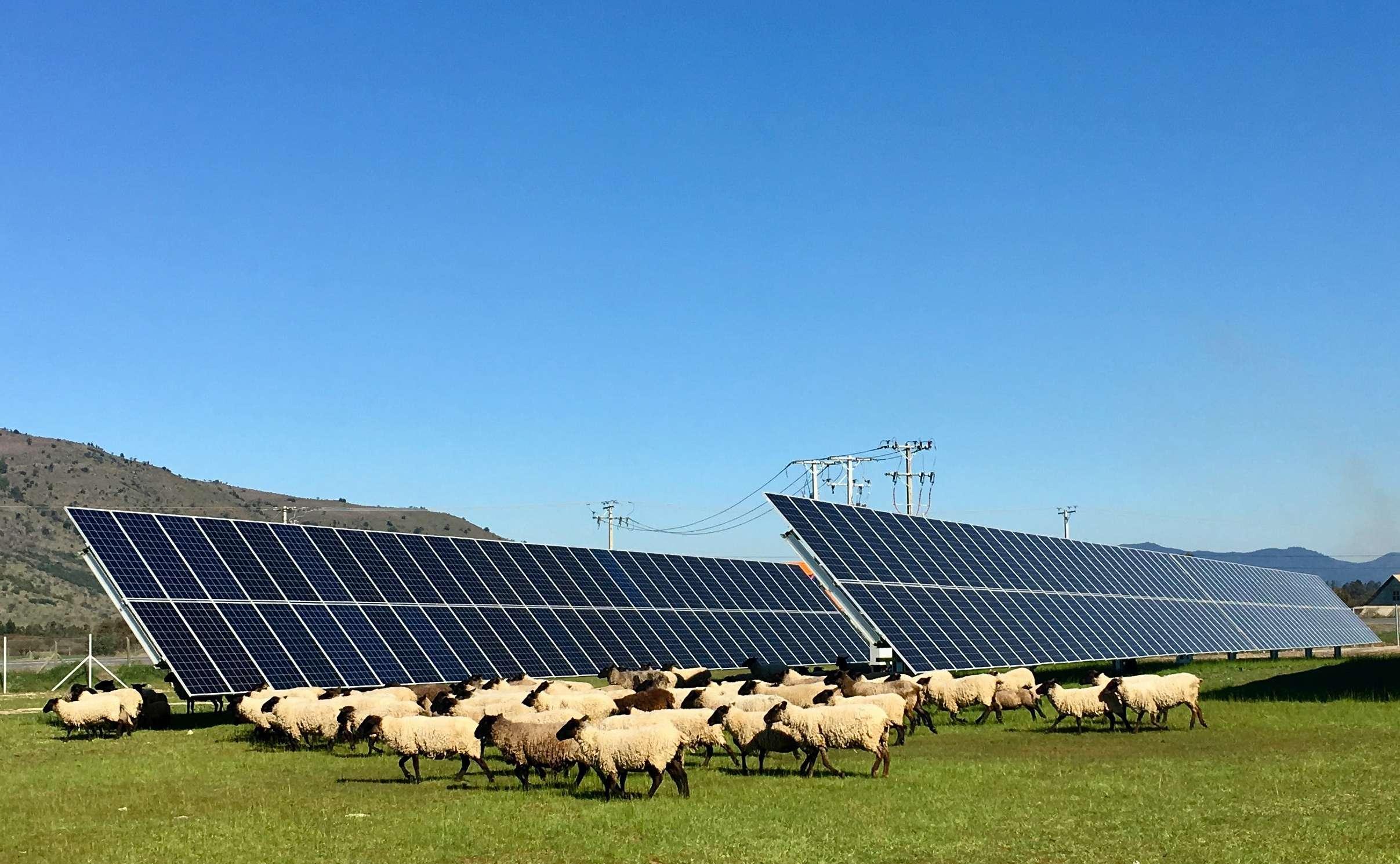
Our Environmental, Social and Governance programme is fundamental to how we work, whether we are striving to protect the environment, empower tomorrow’s problem solvers, support local communities or adhere to the highest standards of transparency.
At the end of 2023, we published our 2030 Sustainability Strategy, which reflected the company’s growth and evolution. We have used 2024 to focus our reporting and action in line with the material topics highlighted in our Double Materiality Assessment ( see pages 12 to 13 ), with a focus on decarbonising our business to reach our net zero commitment ( see page 22 ).
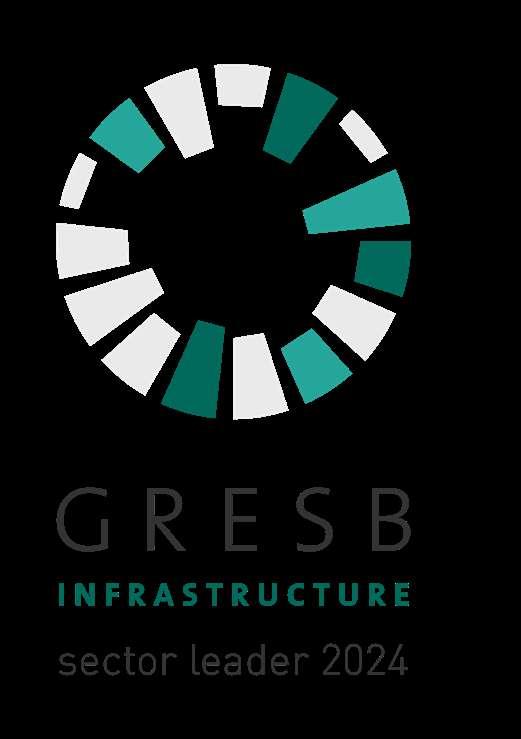
Sonnedix commits to the protection of our planet, focusing on our contribution to the goals of the Paris Agreement, supporting and enhancing biodiversity and reducing our reliance on resources.
Sonnedix commits to a safe, diverse and inclusive workforce and ensuring that our communities develop sustainably, with learning and innovation at the heart of our engagement. We commit to promoting sustainability within our supply chain, focusing on decarbonisation, human rights, and health, safety and the environment.
Proceed on the pathway to net zero by 2040, and meet interim 2030 targets.
Implement TCFD-aligned disclosures and approach to climate risk.
Continue to promote resource efficiency with renewed focus on material water use in high stress areas.
Design, construct and operate our assets in harmony with local nature ecosystems.
Reduce H&S incidents, aiming at zero recordable incidents, and enhancement of H&S culture across the organisation.
Implement the Sonnedix DEI 2030 roadmap, including continuing to champion women and underrepresented groups and promote social mobility.
Roll out of 2030 supplier engagement plan for strategic suppliers, with a focus on GHG human rights and traceability. Actively participate in and support industry-wide supply chain stewardship initiatives. Support diversification of renewable energy manufacturing base through localised sourcing of key equipment where appropriate.
Support socio-economic development through local community projects, educational initiatives, employee volunteering activities and sustainability partnerships.
Sonnedix commits to continue acting as a sustainable and responsible business, enhancing transparency through non-financial data disclosures, protecting and strengthening stakeholder trust. We commit to engage and empower the whole organisation to take action on common priority sustainability goals.
Scale up cross-functional collaboration and accountability for priority sustainability topics.
Sustainability-linked performance goals for senior executives and Board-level training around material topics.
Continue to build and protect stakeholder trust through a robust corporate governance framework, enterprise-wide risk management and effective ethics and compliance programmes. Alignment of non-financial reporting with financial accounting.
During 2023, we undertook our first Double Materiality Assessment (DMA) aligned with the topics in the European Sustainability Reporting Standards (ESRS) and associated guidance documents. Whilst Sonnedix doesn’t currently fall into scope to report against these standards under the Corporate Sustainability Reporting Directive (CSRD), we have used the findings of the DMA to further enhance the disclosure of material topics within this report, to aid transparency in a phased way. By streamlining on material topics, we have laid a strong foundation for the preparation of our integrated report, set to be published in the coming years.
At the start of the process, we set up a working group consisting of members of the ESG and Finance teams, along with a third-party consultant. We engaged multiple stakeholders during the assessment to utilise subject matter expertise and market knowledge to guide the outcomes. At the end of the process, findings were presented to our Board’s Audit and Risk Committee and we began reviewing the required disclosures for our material topics. We will continue to review our DMA in line with any relevant regulatory reporting requirements moving forwards and work to enhance disclosures around our material topics.
Our 2023 - 2024 process followed three main steps:
We collected insights through an internal and external analysis of selected suppliers, peers and customers to create a topic longlist, aligned with the 10 ESRS ESG topics. These were compared with the topics in our previous materiality assessment.
We mapped primary stakeholders using two factors:
1) Sonnedix’s impact on that stakeholder; and
2) the ability of that stakeholder to influence Sonnedix.
We ran 13 interviews with our primary stakeholders to validate and further refine our ESG topics.
Using the previous steps to determine our topic shortlist, we ran workshops with internal stakeholders to determine the positive and negative environmental, social and financial impacts of the ESG topics.
We validated outcomes with key internal stakeholders, with findings and the final matrix presented to our Board appointed Audit and Risk Committee.
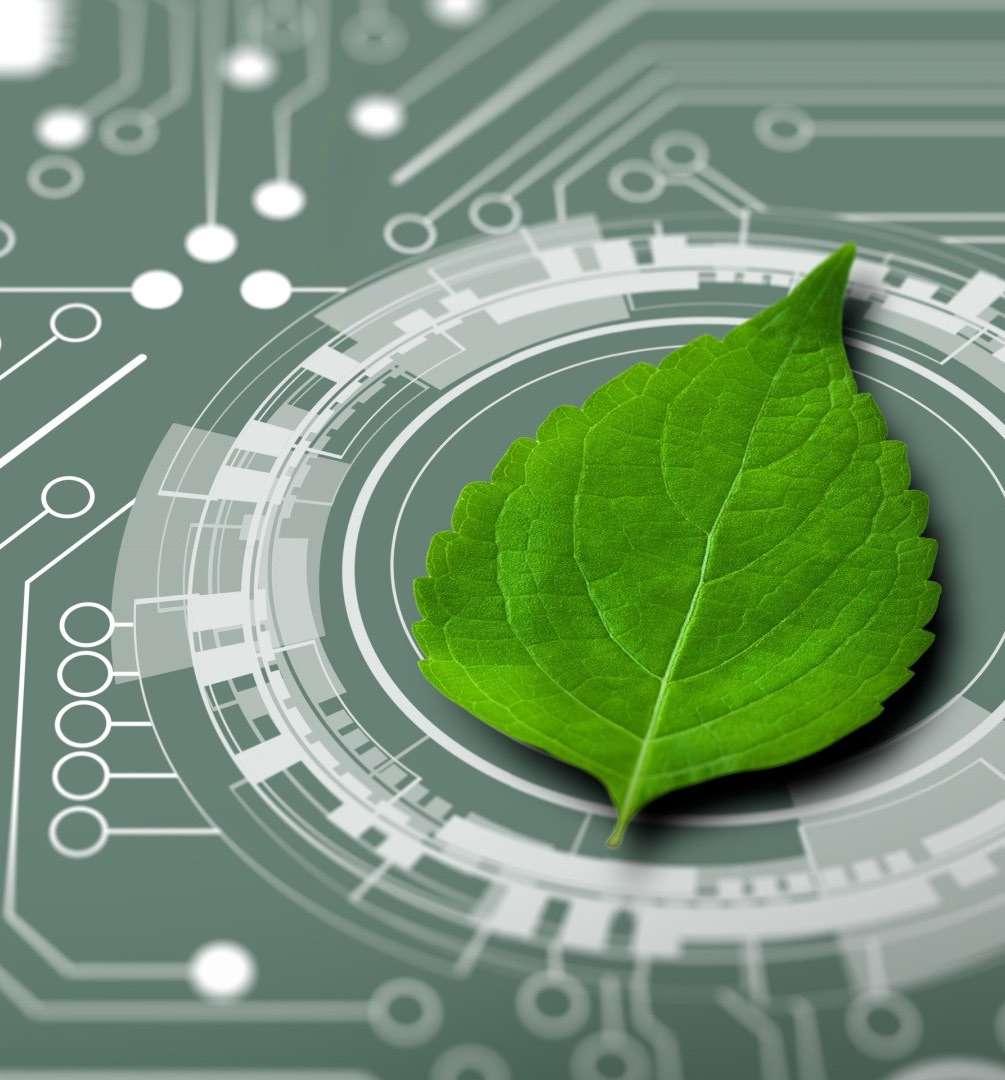
We undertook a stakeholder mapping exercise using inputs from the internal working group and knowledge from our third-party consultants. Each stakeholder group was given a score based on our impact on that stakeholder, and the influence from that stakeholder on Sonnedix, both of which were scored under the scales Low, Medium and High.
We looked at Scale, Scope, Remediability and Likelihood, each with it’s own scale. For Impact materiality, we assessed the ‘severity’ and ‘likelihood’ of topics, and for Financial materiality, we assessed the ‘financial magnitude’ and the ‘likelihood’.
All topics identified were already areas of focus for Sonnedix, based on the prior materiality exercises undertaken, with integration in our ESG and the broader corporate strategy already recognised. All identified topics are thought to impact/benefit the business within the short to medium term, aligning with our financial forecasting frequency which supports the rapid growth ambitions of the business.
The findings provided the basis for the plotting of Sonnedix’s identified ESG topics in the materiality matrix on the right, with the top left, top right and bottom right quadrants showcasing the full ESRS-aligned topics. Whilst the topics in the bottom left quadrant are not identified as material to Sonnedix, they are still part of our broader strategy and we will continue to disclose our progress in relation to them.
Topics were assessed using ‘actual’ and ‘potential’ timeframes. However, we will likely align with the ESRS timeframes for DMAs when we update our assessment moving forwards, opting to use short term (less than one year), medium term (one to five years) and long term (five years or more).
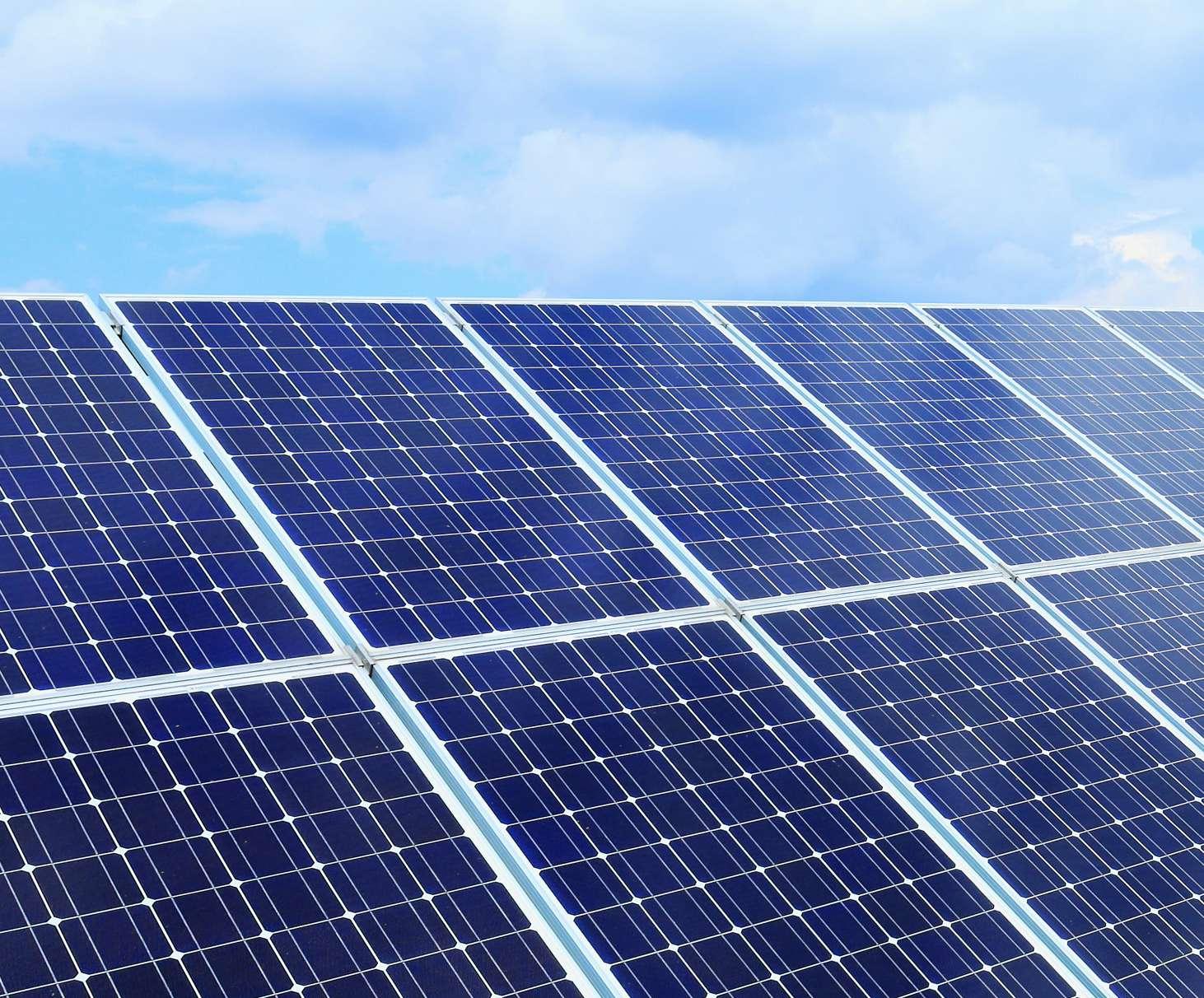
Aligned with the UN SDGs, our strategies and policies drive purposeful growth. Through sustainability and ESG initiatives, we contribute meaningfully to key SDGs.
Through biodiversity mitigation and enhancement on our sites; by partnering with tree planting organisations.
Promoting health and safety of our employees and Global Partners through our Social Policy and Standards; implementing wellbeing initiatives for our employees.
ACTION
Through the production of renewable energy and our net zero ambition. 15 3
RESPONSIBLE CONSUMPTION & PRODUCTION
Through our sustainability supply chain management and procurement practices; implementing our supply chain audit programme.
ENVIRONMENT CHAPTER SOCIAL CHAPTER GOVERNANCE CHAPTER
SUSTAINABLE CITIES & COMMUNITIES
Through our programme of social and economic development activities in the local communities; implementing volunteering activities by our offices.
4 5 7 8 11 12 13 OUR CONTRIBUTION TO THE SDGs
Education is a core focus of our Sustainability Strategy, with our target of reaching 1 million learners by 2030 exceeded through our Sustainability Academy.
Setting out gender-related targets and initiatives; establishing Sonnedix Women’s Alliance as part of our Employee Resource Group coalition, the One Team Network.
AFFORDABLE & GREEN ENERGY
WORK & ECONOMIC GROWTH
Continuing to build a comprehensive compliance programme built on policies such as Human and Labour Rights, fostering job creation, local skill development and our commitment to reasonable working hours and fair wages.
In line with Sonnedix’s purpose as a responsible renewable energy producer; displacing GHG emissions in line with Sonnedix’s business model as a responsible producer.
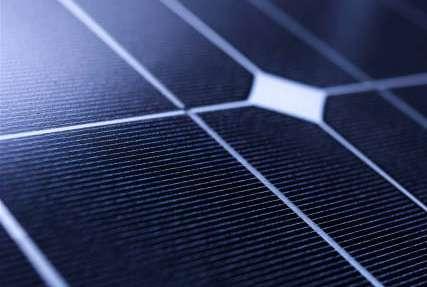
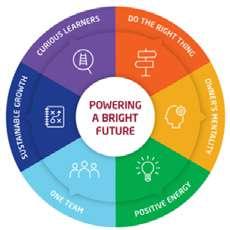
We launched the 2030 Sustainability Strategy, strengthening focus across numerous impact areas.
Curious Learning was added as a new company value to build future capabilities through active learning and adaption.
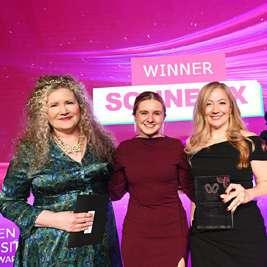
Our Legal team wins the award for Environmental Sustainability Initiative of the Year at the Women and Diversity in Law Awards.
Funds were donated to plant 5,000 trees in Portugal in aid of International Forest Day, to support wildfire recovery efforts.
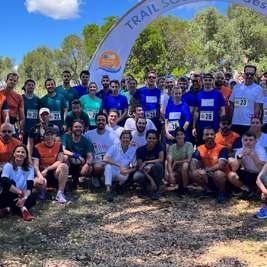
Sonnedix’s first limited assurance was achieved for the selected metrics included in our sustainability-linked financing.
Members of our France team participated in the Trail Solidaire des EnR #1 charitable race, supporting Fondation Synergie Renouvelable.
Sonnedix became an official member of Energy UK.
The Miami office team collaborated with the Frost Science Museum to take part in the Museum Volunteers for the Environment Program.
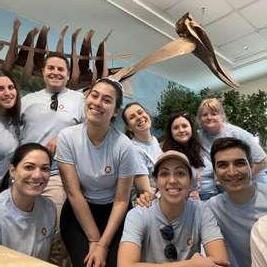
The team in Spain invited students to visit Sonnedix Betierra, alongside classroom sessions in primary schools and universities.
We launched our second Safety Week with various HSE activities across our global offices such as first aid and firefighting training, among others.
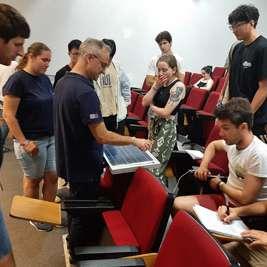
We celebrated Pride Month, with several activities and initiatives held across our global offices.
Numerous educational activities in France, Spain and Italy, from students visiting our sites to educational treasure hunts in local villages.

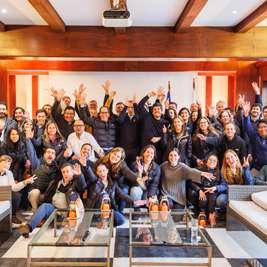
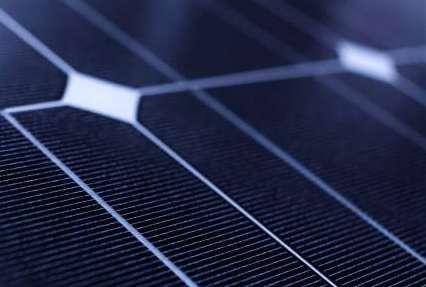
Launch of the 2024 - 2030 Diversity, Equity and Inclusion (DEI) Manifesto.
Partial funding was contributed for a new fire truck in a community local to one of our projects in Poland.
Launch of the Sonnedix Impact Awards to recognise team members for exceptional work and championing the company’s values.
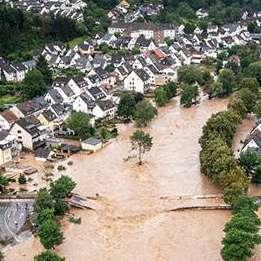
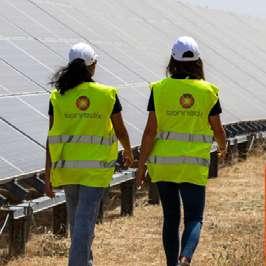
Sonnedix was named the Infrastructure Sector Leader by GRESB, maintaining our 5* status and perfect score of 100.
The Polish Growth team provided urgent support to local communities affected by severe flooding, including dryers, power generators and other needs.
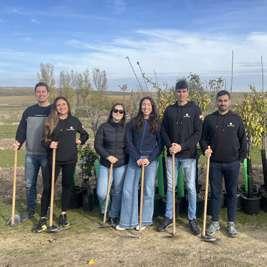
We came together to support floodaffected communities in Valencia, providing cleaning supplies, water pumps and educational materials to support uninterrupted learning.
We signed our largest and most innovative refinancing in Sonnedix’s history, which was structured as a Green and Sustainability-Linked Loan.
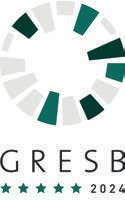
Sonnedix continued to financially support Filha do Sol’s initiatives in Brazil to address climate vulnerability, biodiversity loss and gender inequality through women-led agroforestry projects.
Across the globe, Sonnedix’s offices donated time, food and/or gifts to those in need during the festive season.
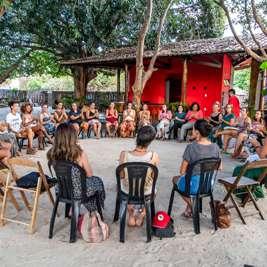

Our commitment: To proceed on a pathway to net zero by 2040 and implement Task Force on Climate-related Financial Disclosures (TCFD)-aligned disclosures and approach to climate risk.

In 2024, we developed our first 2040 Climate Transition Plan to guide the integration of decarbonisation alongside our growth ambitions and vision for a low-carbon global energy system (see more details here).
The following information has been prepared using the recommendations from the Task Force on Climate-related Financial Disclosures (TCFD), given the growing demand for standardised climate related disclosures.
The focus is on the four key areas recommended by the TCFD: 1) Climate governance, 2) Climate strategy, 3) Climate-related risks and opportunities and 4) Climate-related metrics and targets. We also give an overview on our approach to climate change more broadly in our 2030 Sustainability Strategy, with cross-cutting information covered in this section.
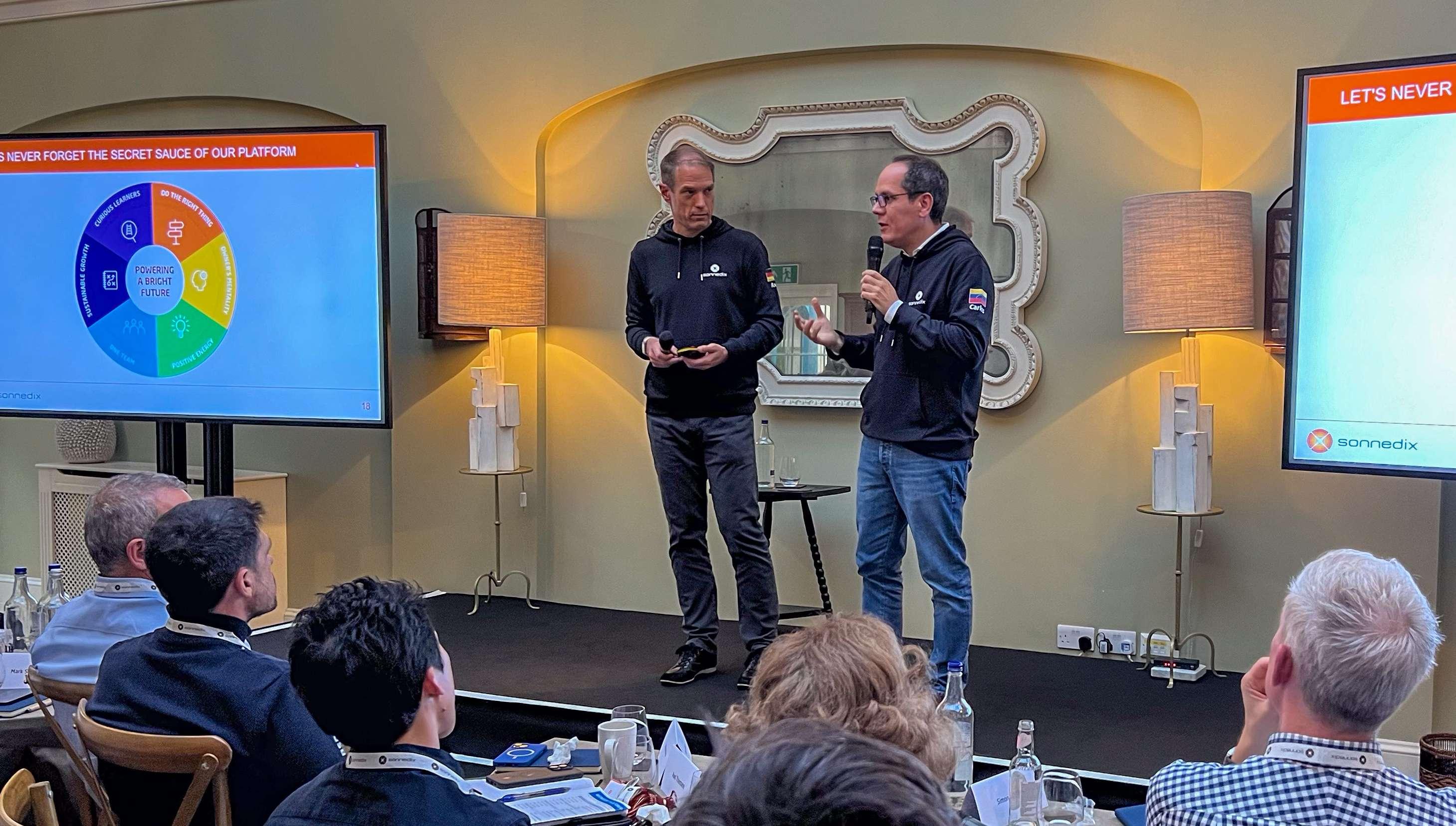
Our Board of Directors is our highest governing body responsible for ESG matters, including oversight of climaterelated risks and opportunities.
The CEO and the Senior Leadership Team commit to achieving the objectives of the Sustainability Strategy as one of the company-wide strategic initiatives. The day-today execution of our climate-related commitments is led by our ESG team, headed up by our Head of ESG. Together, they ensure effective implementation of the Sustainability Strategy, along with compliance with our Environmental Policy and accompanying standards.
For more, see Governance on page 46 .
Whilst we continue our efforts to lower our emissions and reduce our impact on climate change, we recognise the need to focus on adapting to the changes that are already here.
Addressing climate-related risk, adaptation and resilience are all central to our approach. We continuously look at the impact climate change can have on the resilience of our business, through the lenses of both transition and physical risks and opportunities. Our approach is reinforced by the Double Materiality Assessment ( pages 12 to 13 ) we undertook during 2023 as part of our preparatory work for the Corporate Sustainability Reporting Directive (CSRD).
In assessing the transition risk of climate change, uncertainty in market signals and increasing cost and scarcity of raw materials were looked into. Whilst increasing climate-related regulations can be an opportunity for renewable energy providers such as Sonnedix, they provide some risk from the fast-changing regulation and increasing need for compliance and reporting functions.
Energy transition drives increased demand for raw materials essential to our industry, which may induce scarcity or increase costs. Whilst some level of risk is apparent, the transition to a lower-carbon economy largely presents an opportunity for us to further expand our business and deploy renewable energy to meet regional and country-level net zero targets.
To understand the materiality of physical climate-related risk and its impact, we completed our first scenario analysis in 2023, focusing on our exposure to key acute and chronic physical climate risk types. We continue to use this assessment and its findings to ensure our approach remains relevant.
As part of the assessment, we looked at the value at risk, using probabilistic risk models to quantify the possible financial impact to property and operational disruption, assuming no mitigation actions from the business. We utilised the scenarios based on the Representative Concentration Pathways (RCP) designed by the Intergovernmental Panel on Climate Change (IPCC) in their Fifth Assessment Report (AR5), which were mapped to the latest IPCC AR6 report’s Shared Social Economic Pathway (SSPs) scenarios.
We looked at three plausible ‘IPCC RCP aligned’ climate scenarios as displayed in the graphic to the right: a below 2°C scenario (1.5°C scenario), a 2 - 3°C scenario and a 4°C scenario (RCP2.6 (SSP1), RCP4.5 (SSP2) and RCP8.5 (SSP5)).
Our modelling took into account five different likelihood scales: Almost certain, Likely, Possible, Unlikely and Rare, and the impact scales used were Severe, Major, Moderate, Minor and Insignificant. All likelihood and impact scales were given a numerical value for determining overall materiality to the business.

Low transition risk in the short and long term as the world fails to transition to a low carbon economy
Physical risks become increasingly frequent and severe in the long term
transition risk in the short and long term as the world fails to transition to a low carbon economy
High transition risk in the short term associated with aggressive mitigation actions to reduce emissions
Physical risks become increasingly frequent and severe in the long term but less so than in the High Greenhouse Gas Emission scenario
As a result of the transition, physical risks are less severe and somewhat similar to the current climate
The analysis covered operational and construction asset types larger than 1MW in size. Whilst the findings did not identify any financially material risks to our business continuity, the assessment identified areas of exposure to some chronic impacts of climate change, that could impact us operationally in the short term (current to 2030) and long term (2040 to 2050). Below are the two most significant risks for Sonnedix.
Climate risk is part of our enterprise risk management process detailed on page 50 . By proactively managing climate risk, we can reduce operational cost from loss of productivity or damage to our assets and as such drive value for the business.
DROUGHT
Increased levels of drought and dry days can expose Sonnedix’s panels to increased amounts of dust and soiling, reducing the power output.
In 2023, 210 Sonnedix assets were estimated to be exposed to around three months of drought per year.
By mid-century, 243 Sonnedix assets are estimated to be exposed to around three months of drought per year.
• Regular cleaning to avoid efficiency degradation. Deploy dry cleaning wherever possible and consider new technologies which minimise the need for cleaning and/or allow water reuse or treatment on site.
• Maintain a good practice fire loss control maintenance and mitigation regime and engage with water management agencies on water resources and drought planning
HEAT STRESS
Increased temperature can increase the risk of equipment malfunction and increase cooling needed for buildings and machinery. In addition, heat stress can impact labour productivity and adequate working conditions.
In 2023, 121 of Sonnedix’s assets were exposed to at least 80 heatwave days per year. Only two assets were expected to be exposed to the highest heat stress exposure of 180+ heatwave days per year.
167 of Sonnedix’s assets are likely to see 80+ heatwave days in a year, with 13 sites exposed to 180+ heatwave days. Heat stress is anticipated to increase across all regions, however, Chile, France and Italy see the biggest overall increase in exposure.
• Incorporate cooling considerations in project design from siting of solar equipment to use of materials and techniques that reduce heat absorption.
• Heat protection measures for workforce and automation of processes highly exposed to heat.
• Maintain a good practice fire loss control maintenance and mitigation regime and perform regular inspections and maintenance for heatrelated sources of failure.
In aid of International Forest Day, Sonnedix donated the funds to plant 5,000 trees in the Estrella Mountain region of Portugal. This region in the central northern part of Portugal has seen a significant number of wildfires in the last decade, devastating around 22,000 ha of land due to drought and hotter summers. Most of the area of the project is on common land, under the management of local communities. Through our ongoing partnership with One Tree Planted, we are contributing to the ecological restoration of this land, improving resilience and adaptation to climate change, and in parallel providing positive impacts for the local community by supporting the rural economy on which these communities depend.
Our projects across the world help reduce the GHG emissions that would have otherwise occurred due to fossil fuel-based power generation. In 2024, we estimate we helped avoid around 1.9 million tonnes of CO2e, based on our production of over 5.1 TWh of renewable energy.
MILLION TONNES CO 2e AVOIDED 5.1
TW h RENEWABLE ENERGY PRODUCED
Back in 2021, we established our carbon emission baseline and committed to achieving net zero by 2040. The same year, we were one of the first 100 signatories of The Climate Pledge, which sets out our commitment to net zero 10 years ahead of the Paris Agreement targets.
Our commitment includes our interim target of 60% absolute reduction for Scope 1 and 2 emissions by 2030.
With the development of our 2040 Climate Transition Plan, we also set an interim Scope 3 reduction target of 40% intensity reduction by 2030.

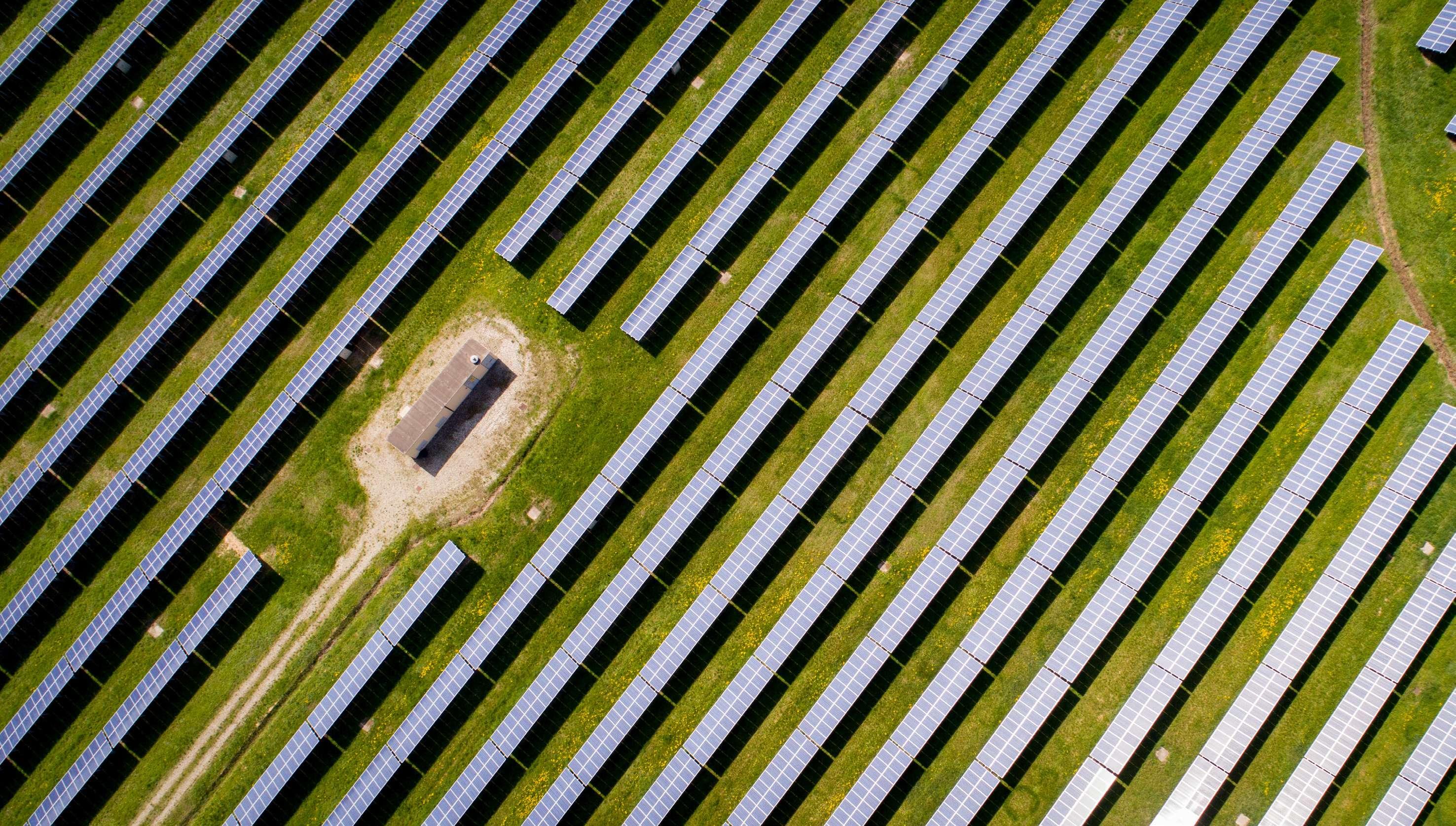

Scope 3 emissions increased by 14.5% versus the 2021 baseline in absolute terms, primarily due to increased procurement of modules and inverters. From 2023 to 2024, a drop in the procurement of panels drove a 55% reduction in absolute emissions related to capital goods.
For 2024, we have not included the Scope 3 emissions intensity as we are reconsidering the metric. Whilst our existing approach shows positive progress, we are reviewing our methodology to ensure it fully captures the nuances of our emissions profile and allows better year-on-year comparison, which is the original intention of providing this information. We will provide an update to our approach and any relevant restated figures in the next round of reporting.
Our commitment: Continue to promote resource efficiency with renewed focus on material water use in high stress areas.
Water scarcity remains a critical issue in many regions around the world, further intensified by climate change and ongoing inefficient water utilisation. Water for us is primarily utilised for dust control and civil works during construction, as well as for cleaning panels on operational projects.
Sonnedix is dedicated to minimising waste production. When waste generation is unavoidable, the company adheres to the waste hierarchy approach: ‘Reduce, Reuse, Recycle’, with disposal being the last resort.
We are dedicated to minimising our water consumption at project sites and to mitigate any adverse effects of water usage that can impact local communities and the environment, particularly in areas experiencing significant water stress.
Our primary source of energy for operational projects is electricity purchased, used to operate our plants (including movement of trackers, powering of air condition, among others), particularly overnight when we cannot rely on the energy produced on site. During construction, the predominant energy source is fuel, such as diesel and gasoline, used in generators and construction machinery.
Sonnedix aims for zero disposal of panels and electronic waste to landfill by redirecting these materials through approved recycling programmes. As a result, over 99% of panels and electronic waste and more than 87% of total waste generated from construction and operational projects was diverted from landfill in 2024.
In 2024, our operational water consumption and intensity fell, with a lower volume of water consumed despite a higher volume of production. Construction water consumption has increased, largely driven by increases in consumption on sites in Spain and Portugal.
The energy intensity of construction projects varies significantly from year-to-year, driven by fluctuations in energy requirements based on the specific needs and locations of each project in a given year.
We continue implementating energy reduction strategies on our operational projects, including the use of energy-efficient and motionsensing lighting systems, as well as advanced heating and cooling devices. These efforts are part of Sonnedix’s goal to reduce energy consumption and decrease our carbon footprint.
At one site in France, we have been using solar-powered autonomous mower robots for vegetation management. This initiative seeks to minimise reliance on traditional fuel-powered machinery.
Our commitment: To design, construct and operate our assets in harmony with local natural ecosystems.
Our assets have a lighter ecological footprint than many other energy industries and types of assets. However, the construction of new assets can pose a risk to natural habitats.
Sonnedix continues to enhance biodiversity within our project locations, taking time to understand any potential impacts on biodiversity and ecosystems throughout our projects’ life cycle. New projects are often required to have an Environmental and Social Impact Assessment (ESIA) which identifies risks and provides mitigation measures to be implemented in accordance with best practice advice. When an ESIA is not required for permitting, the ESG team reviews available studies, undertakes a streamlined ESIA analysis or requests other additional studies from third parties if any risk is suspected. As well as protecting ecosystems, we actively promote biodiversity at our sites themselves, through the planting of wildflower meadows and/or native species, the installation of bird or bat boxes, where applicable, or the use of grazing sheep or cows for grass maintenance.
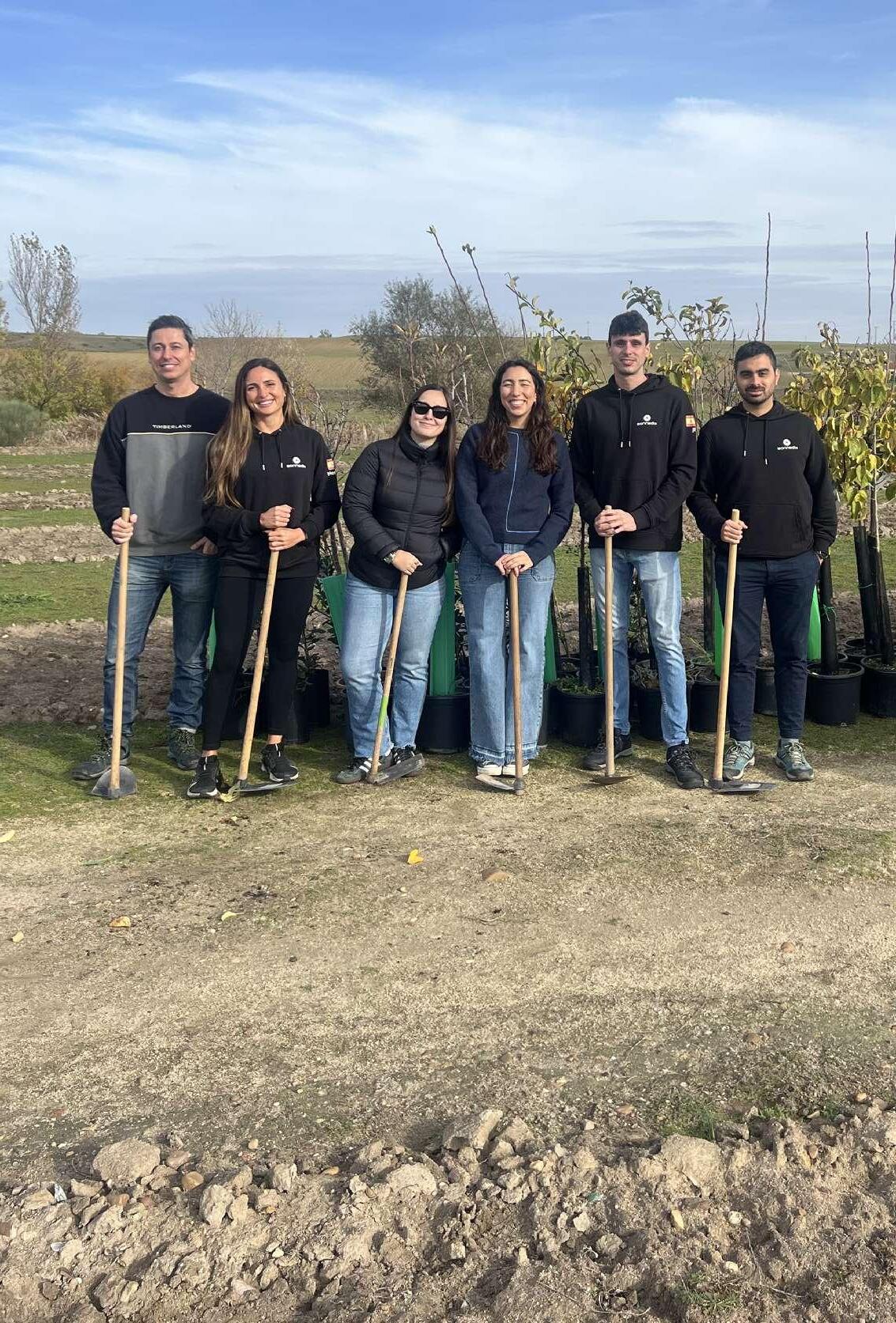
We have been working hard to enhance the biodiversity across our newly acquired Polish sites. In 2024, we began creating a wildflower meadow in our WD Cluster PV portfolio, comprised of native flowers and grasses.
We invited local community members to work with us in sowing the seeds, fostering a sense of pride and ownership in the project, as well as supporting various bird, reptilian, amphibian and pollinator species to thrive. We also used stones and boulders collected during construction to create natural biotopes, offering shelter for these species. Bee and insect hotels were later added, which were created by our local team.
During the year, we joined forces with Junta de Castilla y Leon to turn a former landfill site into a biodiversity hotspot. The site required significant investment to restore and revegetate it, following its closure 20 years ago. Sonnedix joined in during the second phase where the focus was reforestation. During the project, we planted native shrubs and trees such as apple, fig and cherry trees native to the area.
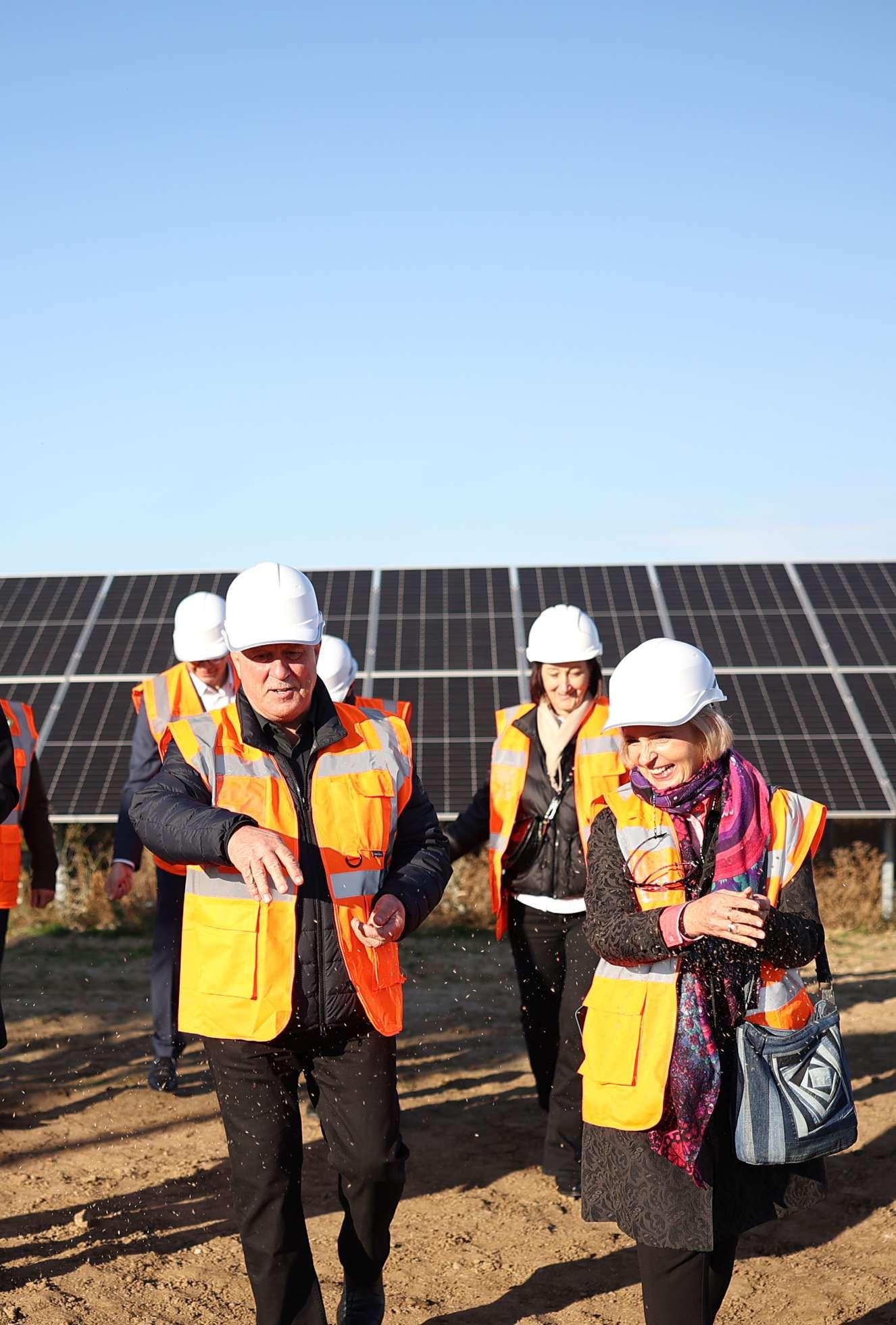
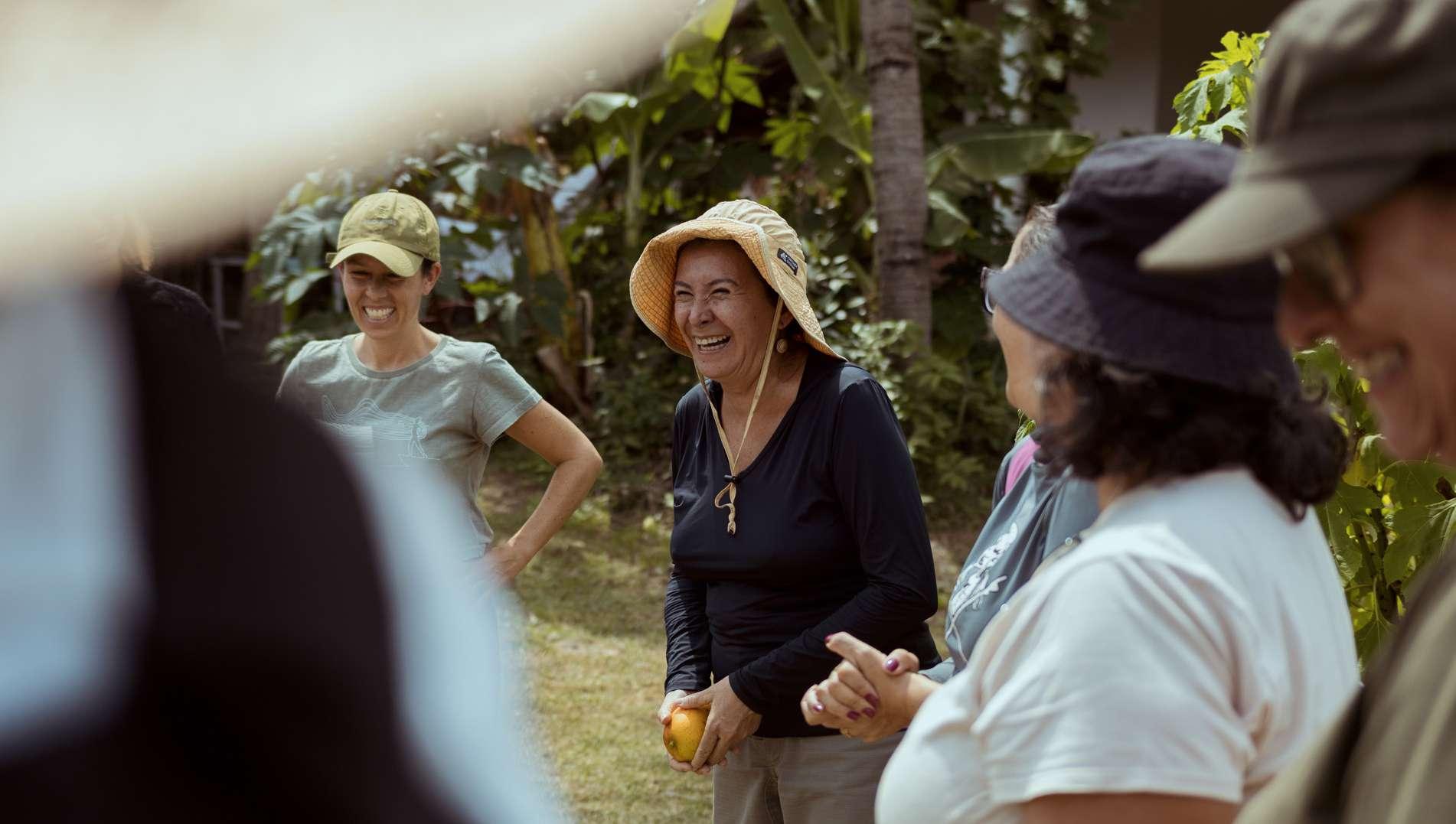
In 2024, Sonnedix continued to provide financial support to Filha do Sol, an NGO dedicated to addressing critical challenges in Brazil’s Northeast and Amazon regions, including climate vulnerability, biodiversity loss and gender inequality.
Our contribution provides support to agroforestry initiatives within the Parnaíba River Delta Region as Nature-Based Solutions (NBS) for climate adaptation, with a focus on enhancing climate resilience, promoting sustainable livelihoods and empowering women as climate leaders.
To date, this contribution has directly supported the regeneration of ecosystems and the implementation of sustainable agricultural practices through two different women-led projects: Sítio Caripina and La Reserva.
Our donation is part of Filha do Sol’s 2025 - 2027 strategy, where they aim to train 200 people in climate resilience, equipping them with practical tools to mitigate risks and strengthen frontline communities.
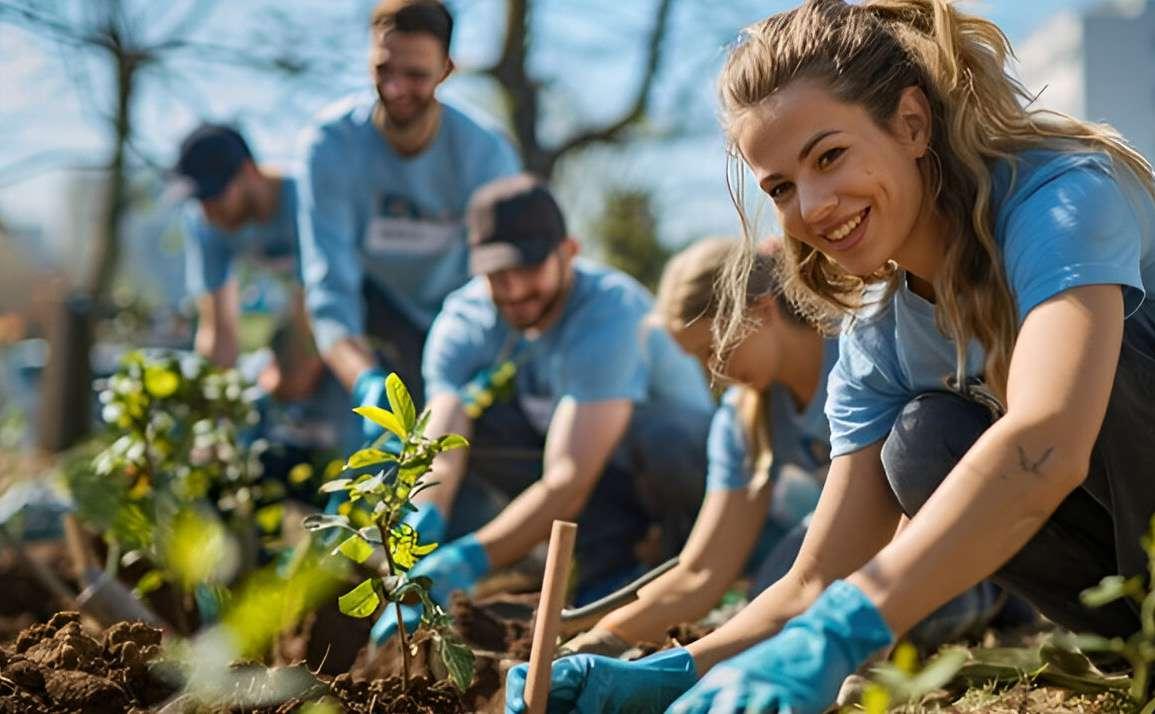
Our commitment: Continued reduction in H&S incidents and enhancement of H&S culture across the organisation.

Health and safety is a top priority for Sonnedix. Our Social Policy and Standards, Governance Policy and Standards, as well as our Health and Safety Policy are specifically in place to outline our approach. This approach is focused on protecting and promoting the health, safety and welfare of all our people, contractors and any other individuals who may be affected by our activities. This also includes members of the local communities in which we operate.
Our approach to safety is endorsed by our Senior Leadership Team, who review safety performance on a monthly basis. As part of this, they also review and approve our Health and Safety Policy updates, with the next round expected in early 2025.
We have a strict incident notification process, supported by an Incident Severity Matrix, to help all employees and contractors identify the severity of an incident and what actions to follow should one occur. Regardless of its level of severity, we investigate every incident and produce a findings report, with any incident categorised as ‘lost time’ communicated to our Senior Leadership Team.
Sonnedix’s dedicated Health, Safety and Environment (HSE) team is responsible for the deployment of our Health and Safety Management System, which is based on ISO 45001 standards, covering 100% of our employees. Along with our policies and standards, more specific health and safety plans, procedures and contractual requirements are in place at both the corporate and project level, to ensure an appropriate level of management control.
To further ensure our controls remain as effective as possible, the HSE team, along with our local teams and, where required, third-party auditors, perform audits and inspections of our contractors. In 2024, 52% of contractors who constructed or operated our plants underwent either an internal or third-party audit.
Whilst procedures and processes can mitigate and manage safety risk, to a degree we rely heavily on people to keep themselves and each other safe.
At Sonnedix, we run our Best Safety Observation Contest quarterly, which promotes a safety-first mindset amongst not only our employees but also our Global Partners. We reward people who are proactively raising awareness of any unsafe behaviours or safety risks, with the aim of preventing them from becoming a reality.
• Regular update of procedures.
• Development of Corrective Action Plans.
• Objective and KPI setting.
• All projects, offices and activities should be subject to a formal risk assessment addressing general and specific risks.
• Performance tracking.
• Incident monitoring.
• Audit management.
• Inspections by Sonnedix project teams.
• Ad hoc audits by Sonnedix HSE team or third-party auditors.
• Mandatory induction training for all Sonnedix employees.
• Targeted specialised training for key Sonnedix personnel.
• Contractor ‘Tool Box’ talks and training.
As a business, we place a lot of emphasis on H&S training to upskill and equip our people and partners with the tools they need to be safe. In 2024, we conducted more than 65 training courses with more than 500 attendees, resulting in about 3,000 training hours in HSE topics. Topics included first aid, electrical safety, firefighting, working at heights and safe driving. More in-depth training is also provided for individuals that are closer to the management and execution of our construction and operational activities, including topics such as hazard identification, assessing and controlling risks, management systems and techniques and performance measurement.
In 2024, our lost time injury frequency rate (LTIFR) was 3.49 (compared to 2.6 in 2023) and the total recordable incident rate (TRIR) was 4.3 (compared to 3.5 in 2023). The increase in both LTIFR and TRIR was primarily driven by an increase in the number of new operational sites added to our growing portfolio as well as an increased number of construction projects.
Whilst we have precautions and monitoring and a risk-averse approach to safety as a business, in 2024 one of the sub-contractors working on a Sonnedix development in the UK sadly lost his life. Although not a direct employee or contractor of Sonnedix, nor under our supervision, we care deeply about all people working on our projects and believe everyone has the right to a safe and secure working environment. Health and safety continues to be a top priority for Sonnedix.
As part of our broader work to reduce risk, we actively collaborate with others too. For instance, we run annual workshops with contractors aimed at promoting safety and developing strategies to reduce incidents and injuries to their employees. In 2024, we conducted 44 on-site workshops in collaboration with O&M and EPC contractors, covering a range of topics, including excavation, electrical work, vegetation management, loading and unloading activities, amongst others.

In June, our employees in our Chile office organised a gathering with the heads of safety, health and environment from all the contracting companies we collaborate with. The aim was to foster cooperation, share experiences and review performance.
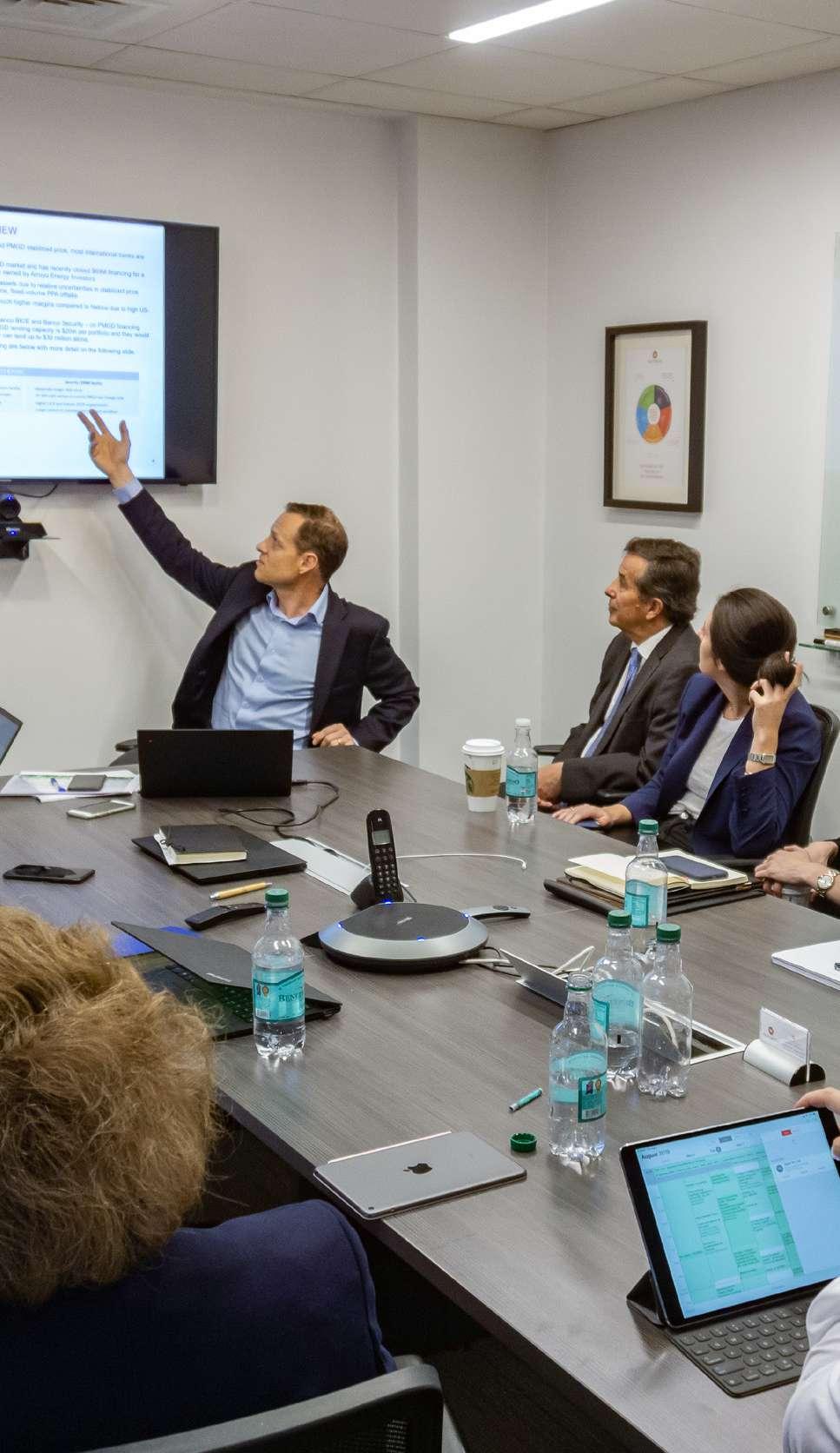
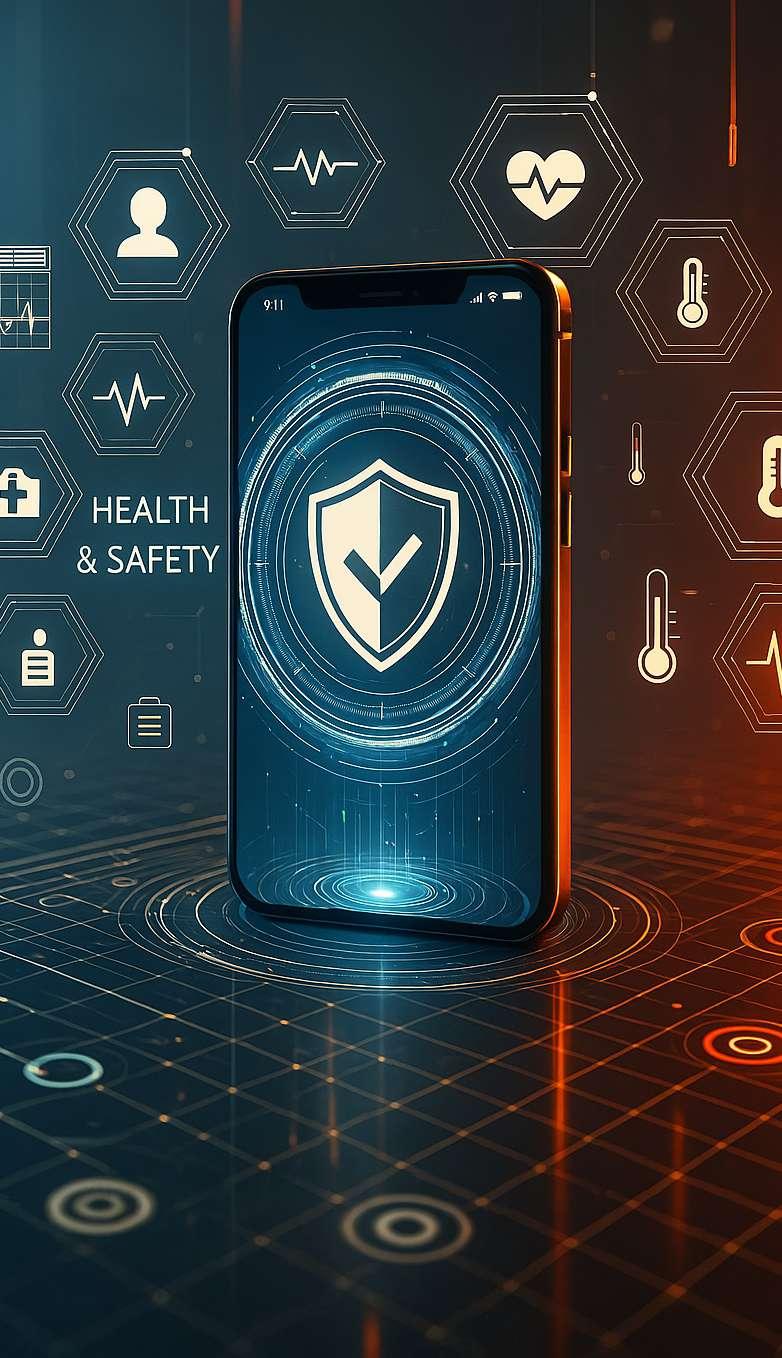
In honour of World Day for Safety and Health at Work, we ran our annual week-long engagement programme with our employees, aimed at raising awareness and reinforcing the significance of good health and safety practices.
Across our global offices, we organised various activities, including first aid and firefighting training, risk identification workshops and even chiropractor sessions. Our CEO delivered a motivational address to all employees, and we wrapped up the week by announcing the winners of our inaugural Best Safety Observation contest, which celebrates our people who are proactively identifying and calling out potential safety risks.
Towards the end of the year, we launched our new Safety Observations Mobile App, which is integrated with our Computerised Maintenance Management System (CMMS) for employees and contractors to easily report safety observations anytime, anywhere. This will ensure that even those in the most remote working locations have access to submit photos and information on anything which looks unsafe.
Alongside the app, we also developed the CMMS for fully integrated reporting of all HSE and ESG incidents and data with company-wide asset information. 2025 will be the first full year of us using this platform.
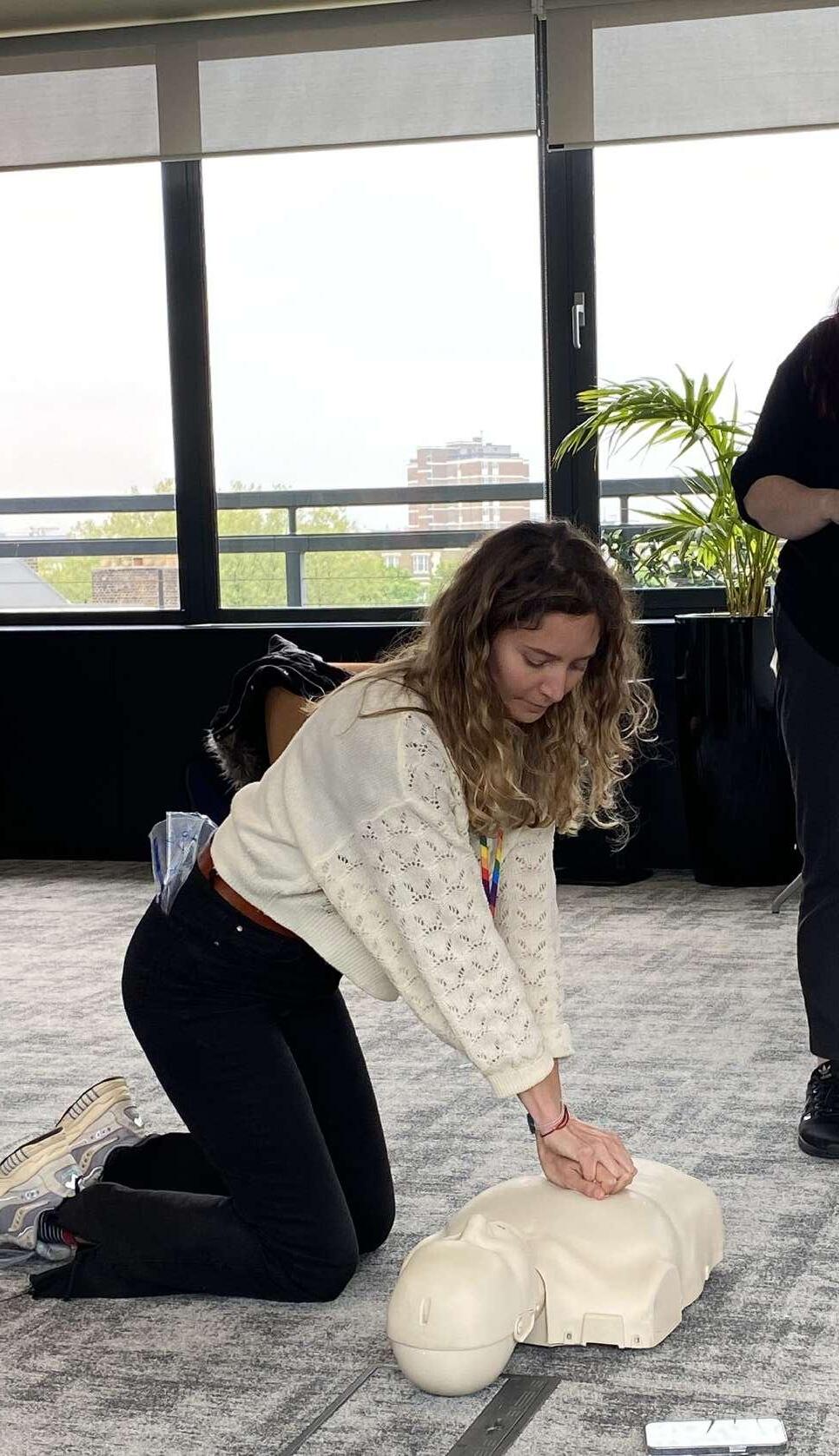
Our commitment: Implement the 2030 DEI roadmap, including continuing to champion women and underrepresented groups and promote social mobility.
Diversity, Equity and Inclusion (DEI) is an integral part of our culture as we strive to create a diverse workforce and inclusive culture.
In 2020, we launched our first DEI Manifesto, which set out our commitment to DEI, and the roadmap for implementation up until 2023. This focused on five initial pillars – Gender; Race and Ethnicity; Disability and Wellbeing; Age Diversity; and Inclusion. Until 2024, we delivered progress against these pillars, such as the proportion of women hires and internal promotions going to women, the introduction of our Inclusion Scorecard, launching our Employee Resource Groups (One Team Networks) and launching our annual Global DEI Summit. We received external recognition for our results, positioning Sonnedix as a leader in the renewables sector for DEI.
In 2024, we took the next step in our DEI journey, launching the 2024 - 2030 DEI Manifesto, reviewing progress and developing our goals into a longer-term strategy to maximise the impact of DEI in the workplace.
Our new DEI Manifesto 2024 - 2030 consists of four pillars:
Promoting gender equity with a focus on career development
Work to ensure equal opportunity regardless of gender, and focus on the attraction, progression and retention of women by fostering, celebrating and advocating for women’s visibility and success.
Strengthening our inclusive culture
Invest in ensuring we have a strong, diverse and inclusive culture, with curiosity and resilience at its core, and develop our people to deliver business outcomes that drive sustainable growth.
Maximise wellbeing and unlock the power of difference
Promote good mental health and build awareness of neurodiversity to provide an environment where everyone is aware of and can proactively manage their wellbeing to do their best work.
Empowering underrepresented groups to drive collaboration
Continue to listen to the experiences of colleagues from under-represented groups, explore socio-economic diversity, enhance intergenerational working, and improve all our people’s intercultural competence.
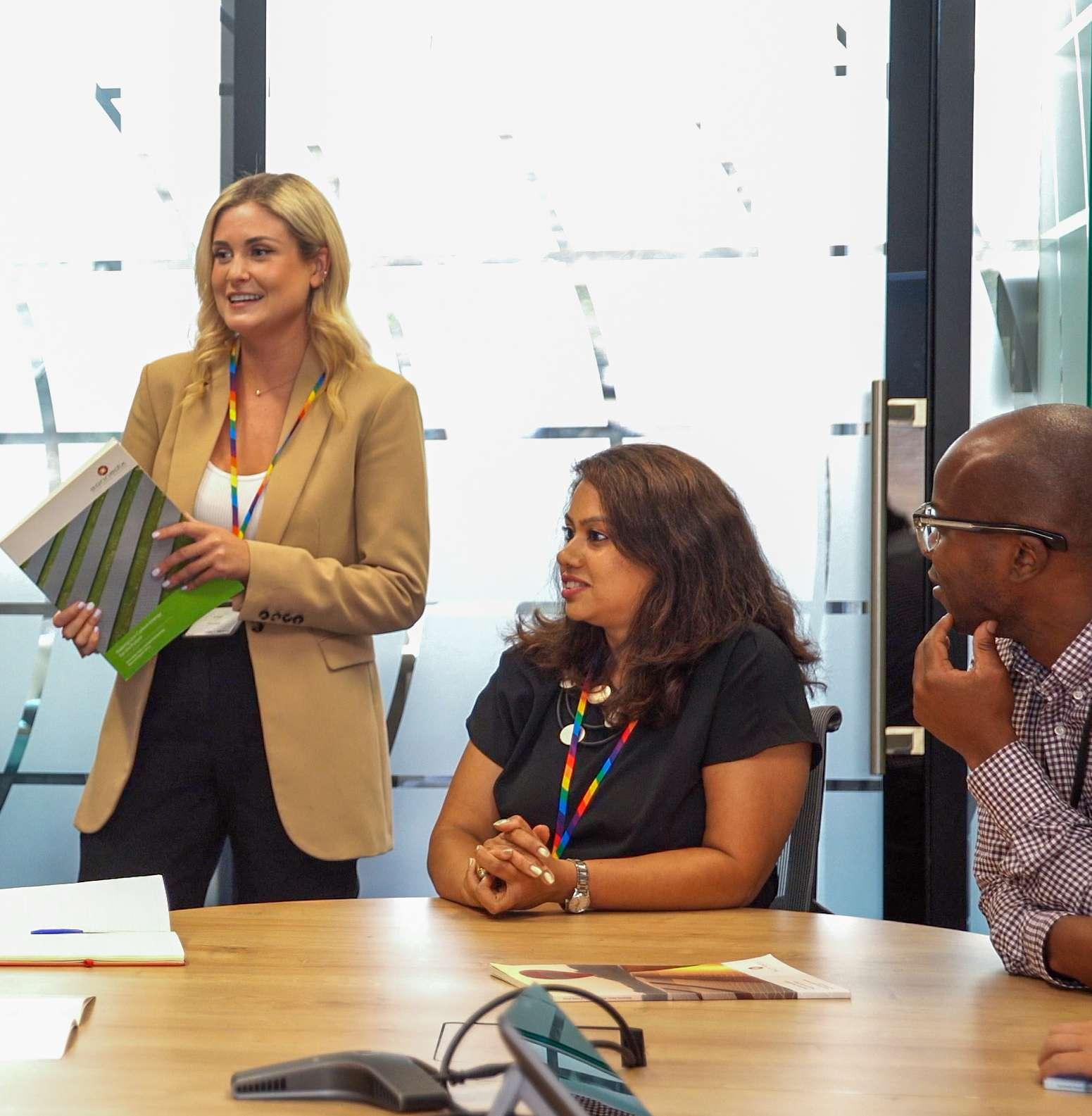
In line with our aim of ensuring a gender-balanced workforce, we target 40% of new joiners, and 35-40% of our overall workforce, to be made up of women. In 2024, 38% of our new joiners were women, which is significantly higher than the industry average of 24%. This was a challenging year, as many of our new vacancies were in typically ‘male-dominated’ fields such as IT and construction.
Whilst we strive for a diverse, representative workforce, we always hire the best person for the role through a fair and transparent recruitment process, ensuring equality of opportunity and access.
Even though our workforce gender diversity is increasing, we recognise there is still more to do. Women are underrepresented in certain functional roles, like engineering or IT, and this can vary largely by geography. In response, we conducted a thorough review of our recruitment process, covering everything from role definition to onboarding. This resulted in an increase in female candidates and the maintaining of a workforce gender balance of 37%, despite a doubling of our workforce since 2020. We closely monitor development opportunities, progression and promotions to mitigate biases and ensure equitable advancement, as evidenced by women accounting for 42% of internal promotions in 2024.
Our Sonnedix One Team is made up of individuals from over 40 nationalities and a wide range of backgrounds. We also have 17 team members who identify themselves as having a disability. An inclusive culture is key to ensuring our people feel valued and supported.
When recruiting people for Sonnedix, we look for individuals who demonstrate behaviours that reflect our values, such as positive energy, owner’s mentality and a curious mindset. We invest heavily in our ‘One Company, many careers’ ethos which underpins the development and progression opportunities for our people.
In 2024, we introduced a new value, ‘Curious Learners’, to emphasise the importance of continuous learning and a growth mindset as our industry evolves. Sonnedix offers a full range of learning and development resources, tools and programmes in our Sonnedix Academy, which is available to all team members.
We also launched the ‘Own Your Career’ Development Guide along with learning workshops, aimed at providing our people with the tools, templates, career path guidance and inspiration, so that everyone can learn how to own their career.
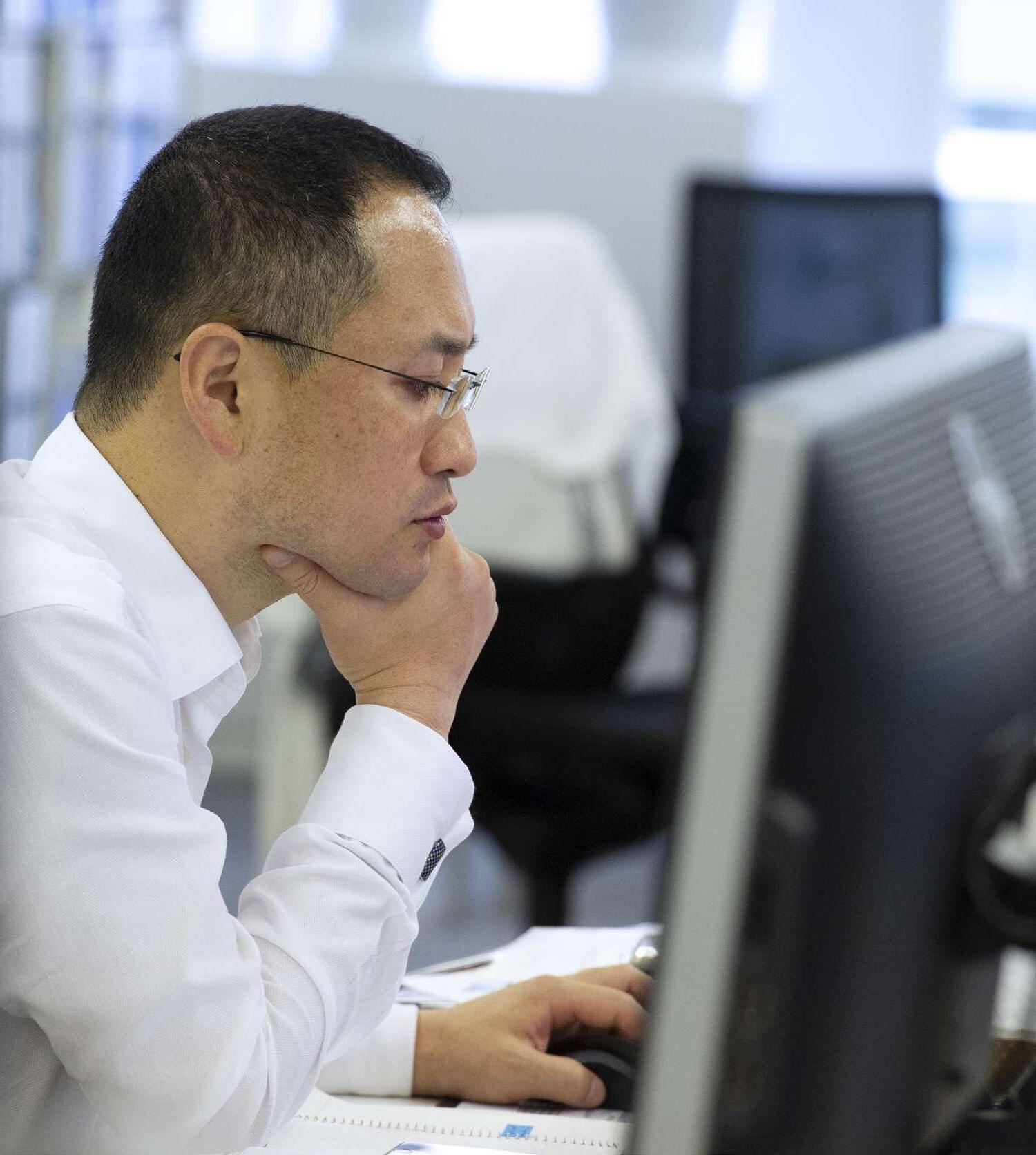
Available to all team members, our Sonnedix Academy includes on-demand access to technical and functional courses, such as Power Marketing, Battery Energy Storage Systems (BESS), legal, financial, ESG and a range of HSE training, leadership and management resources, skills-based courses such as presentation skills, time management and stakeholder management, language training, and mentoring, coaching and shadowing opportunities.
In 2024, over 12,000 learning hours were completed, representing an average of approximately 25+ hours’ learning per team member.
As part of our wellbeing strategy, we organise numerous social events across all our countries each year, fostering connections through activities like walks, quizzes, art classes, sports days, workshops and site visits.
In 2024, we renewed our commitment to wellbeing by launching a Resilience Toolkit, designed to build our One Team’s resilience, increase awareness and communication of the importance of wellbeing, and provide tools and resources that foster a supportive environment.
Our One Team Networks are our focused forums for traditionally underrepresented groups to share their issues, views and needs with the wider business. In 2024, we had four of these groups: the Sonnedix Women’s Alliance, Career KickStarters, Parents & Carers, and LGBTQ+.
We celebrate the cultural, racial and ethnic diversity of our people by actively engaging the entire workforce in learning opportunities and celebrations.
We continuously look for ideas from team members of how people can celebrate their differences in a fun, inclusive way. For example, in the UK office in 2024, we celebrated religious and cultural events such as Lunar New Year, Eid al-Fitr, Holi and Diwali/Deepavali by sharing food, personal stories and information about the celebration.
In addition to this, in 2024 we continued to support the LGBTQ+ community in our vibrant celebration of Pride Month across various offices in June, where we hosted Pride quizzes and organised a global Pride Month virtual workshop with a third-party speaker covering resilience, mental health and the importance of inclusive leaders and allies.
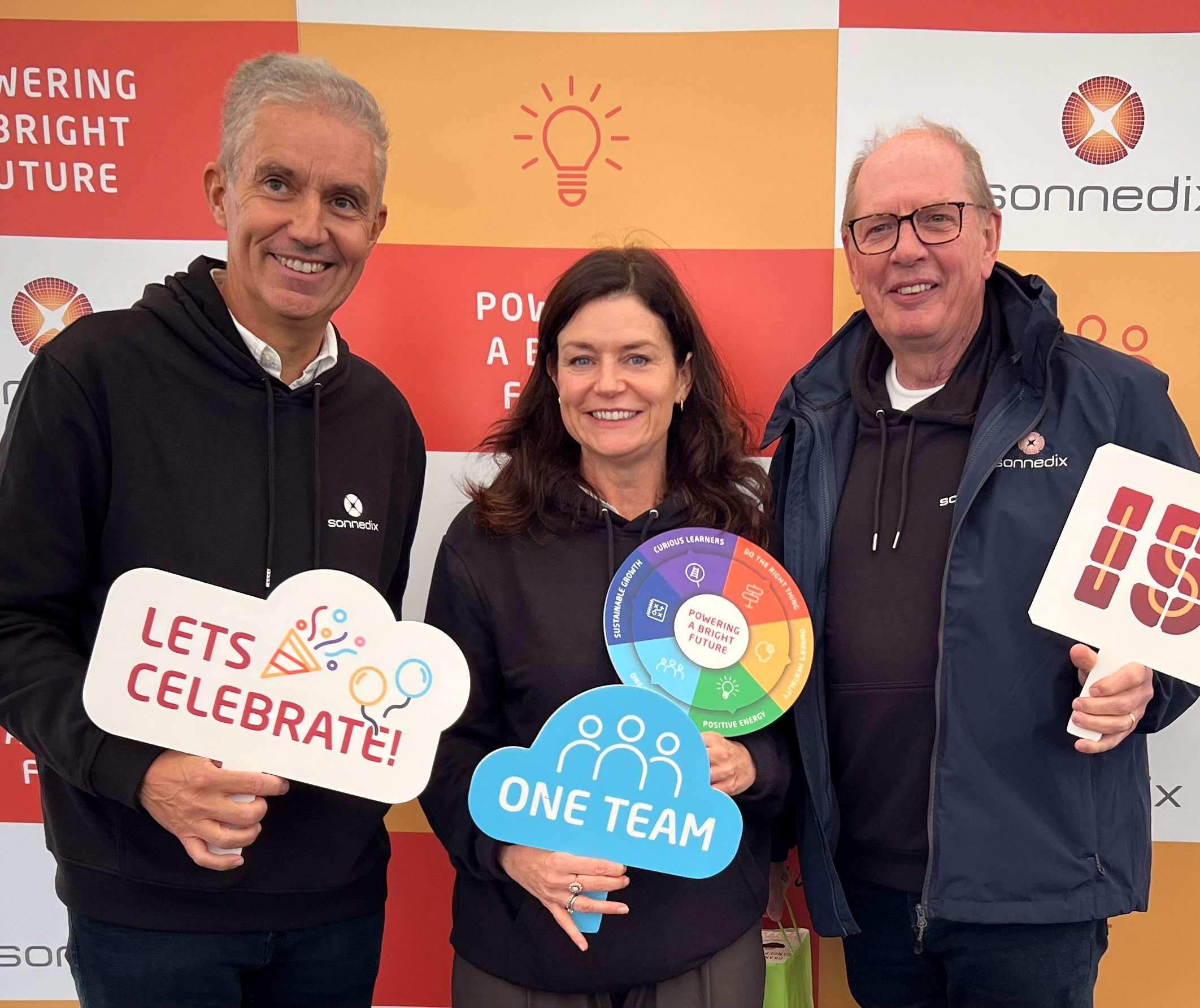
inviting employees, others from the energy sector, key stakeholders and friends of Sonnedix to attend. The theme was ‘Enhancing Resilience’ with three keynote speakers sharing stories about overcoming challenges and using differences as strengths.
Our CEO opened the Summit before welcoming a fivetime Paralympian, a former professional rugby player and a TEDx speaker on disability to address the audience on topics such as showing off your differences, overcoming disability, mental resilience and the power of empathy.

Our ambition is to be an ‘employer of choice’ to attract the best possible talent to our organisation, and we are proud of our continued rating of 4.8 out of 5 on Glassdoor. We offer a range of tailored benefits for each of our markets, covering health, family, caregiving and retirement needs. For a detailed list of benefits, refer to Annex 2 .
We’ve also adopted a hybrid working model for all office-based team members, requiring a minimum of two office days per week. We also have a ‘Work from Elsewhere’ policy, allowing our people to work from another location for up to six weeks annually.
Our multi-generational workforce spans four generations, from Gen Z to Baby Boomers. Our focus is on promoting intergenerational learning to leverage the diverse perspectives within our team.
Within Sonnedix, we have our Career KickStarters group, which empowers early-career professionals with the skills and confidence needed to excel, through targeted workshops, training and mentoring.
We also provide meaningful work experience through the Sonnedix Internship programme, where, each year, we offer approximately 20 long-term internships to people from underrepresented groups, with 40% of interns converting to permanent employees when a suitable vacancy arises.
Along with standard mentoring schemes, Sonnedix also has a reverse-mentoring programme, where our early-career professionals mentor senior employees, offering fresh insights and perspectives into topics like digitalisation, AI and DEI.
We check in with our people using our annual engagement survey alongside regular pulse surveys. These surveys, run by a third party to ensure anonymity, encourage honest feedback. In 2024, nearly 90% of team members responded, with an overall engagement score of 67%, consistent with the score in 2023. Survey results are reviewed and shared companywide, leading to actionable insights. For instance, based on 2023 feedback, a recognition programme was introduced to celebrate contributions across the business for anyone ‘going above and beyond’ expectations and displaying the company values. This includes monthly ‘shout outs’ in country meetings along with global ‘Impact Awards’, voted for everyone, and the first 17 winners were announced on the quarterly global call in November.
To ensure we maximise our One Team’s potential, we continuously invest in manager development, to ensure they are able to maximise their teams’ potential. We also actively manage and track our succession-planning and progression across all levels to ensure we are developing people at the right time and in the right areas of the business. We also have an established annual performance management cycle, where all our people set targets and development objectives, which are reviewed at mid and year-end. 100% of our team members undergo a performance review.
Back in 2022, Sonnedix began running our 18-month-long Accelerator and Future Shaper programmes, each aimed at developing talent in the organisation. Both courses require participants to complete a range of challenges within and outside the company, in physical and virtual sessions, to build their leadership capabilities.
The programmes have multiple benefits – building a strong network between participants and between cohorts (through mentoring), focused personal development (including tailored executive coaching as well as group learning) and building a strong leadership capability across the business. Since inception, we have seen 99 of our high potential team members participate in these programmes, stretching their self-awareness, leadership and collaboration skills. We have retained 92% of participants and 45% have been promoted or changed roles within 12 months of completing the programme.
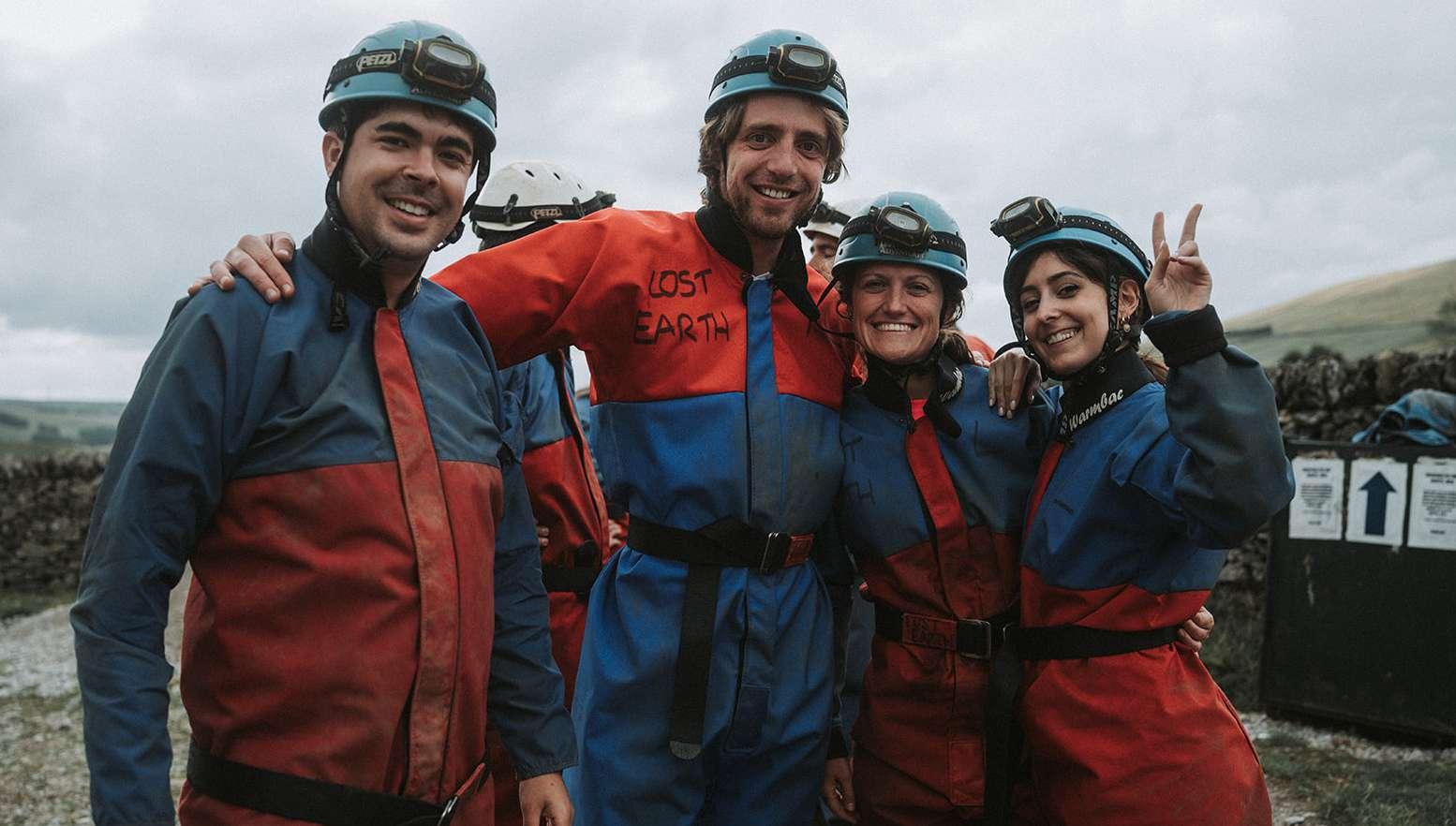
“ A great experience to connect with colleagues that you don’t necessarily know in the company yet, to challenge yourself, taking you out of your comfort zone, and learn about leadership skills. 100% recommended. ”
Our commitment: Promote sustainability within our supply chain, focusing on decarbonisation, human rights, and health, safety and environment.

Due to the ongoing expansion of Sonnedix and our dependence on equipment procurement for new projects, maintaining a responsible supply chain is an essential component of our sustainability initiatives. In 2025, we expanded our sustainability-linked financing to include our responsible supply chain practices. Linking our borrowing to our sustainability performance in this important area reinforces our commitment to creating a positive impact.
Our 2030 Sustainability Strategy outlines specific commitments for 2024 - 2030, including:
• Roll out of 2030 supplier engagement plan for strategic suppliers, with a focus on GHG, human rights and traceability.
• Actively participate in and support industrywide supply chain stewardship initiatives.
• Support diversification of renewable energy manufacturing base through localised sourcing of key equipment where appropriate.
Across 2024, Sonnedix had many projects under development and construction. Our aim was to select and develop suppliers with strong sustainability practices. Over the past few years, Sonnedix has moved away from procurement from numerous individual suppliers towards large framework agreements with key suppliers. This has allowed for greater engagement around ESG topics with our suppliers. Throughout 2024, we continued to undertake screening of new suppliers and implement contractual requirements in supply agreements, with a particular focus on environmental management, human rights and health and safety.
Suppliers from whom we procure modules are subject to third-party quality assurance, ESG and traceability audits.
• Factory audits focus largely around quality, with a light focus on ESG aspects including human resources, human rights, environmental management and HSE.
• ESG audits are a deeper review of a variety of key risk areas, including corporate governance, supply chain management, environmental management and employee responsibility.
• Traceability audits, in relation to the provenance of materials, focus on a supplier’s traceability management systems and processes.
A selection of module procurement is additionally subject to sample batch testing to confirm the traceability of modules.
As the renewables sector continues to expand rapidly in response to climate change, there is a corresponding increase in the demand for raw materials. This growth elevates the risk for businesses within the sector of encountering modern slavery within their supply chains. We recognise that the solar PV supply chain is particularly vulnerable to potential abuses, given the allegations of forced or child labour and human rights abuses. At Sonnedix, we strive for the highest standard of human rights and stand firmly against the use of forced labour and any abuse of human rights.
Sonnedix is taking the following key mitigating activities to minimise our exposure to forced labour and human rights abuses in our supply chain:
• Suppliers continue to be vetted internally by the ESG team as part of the pre-qualification process and externally by independent third-party consultants through the ESG factory and traceability audit programme.
• Contractual provisions related to human rights and forced labour include traceability requirements for key equipment suppliers, subjecting them to supply chain mapping and traceability audits. This allows us to reduce risk exposure and improve transparency across our supply chain.
• We continue to collaborate with industry peers and solar power associations, as driving change in complex supply chains requires collaborative action. Since 2021, Sonnedix has sponsored SolarPower Europe and Solar Energy UK in developing the Solar Stewardship Initiative (SSI), a solar-industry-specific value chain assurance programme. For further information on the key milestones achieved in 2024, refer to the SSI website.
• In cases of new acquisitions and development, the ESG team assesses potential exposure to human rights risks, amongst others, and advises the Investment Committee on the potential risk and mitigation.
• The Board of Directors and Senior Leadership Team are kept updated on any new developments in this area where applicable. We continually monitor upcoming regulatory changes relating to human rights and forced labour.
• Our global whistleblowing channel is available to report on any concerns associated with our activity or the activities of our contractors, including human rights abuses.


Our approach to human and labour rights is governed by the Sonnedix Human Rights, Forced and Child Labour Standard, contained within our Social Policy and Standards document. This involves, among many other things, providing reasonable working hours, fair wages, promoting a safe and healthy work environment and the fair treatment of those who work with us or on our behalf. Sonnedix employees are mandated to attend ESG training, which includes human rights and forced labour amongst many other topics.
Sonnedix has a zero-tolerance policy for the use of child or forced labour and to human trafficking practices and our annual Modern Slavery Statement outlines the steps we take to prevent and eradicate modern slavery in our global operations and supply chains.
Our standards do not only apply to Sonnedix employees. All contractors, suppliers and other Global Partners are contractually obliged to comply with our full suite of ESG policies, including our Human Rights, Child and Forced Labour Standard. Sonnedix will not knowingly do business with Global Partners who violate these practices and we aspire to use our influence to bring about positive change.
Our commitment: Support socioeconomic development through local community projects, educational initiatives, employee volunteering and sustainability partnerships.
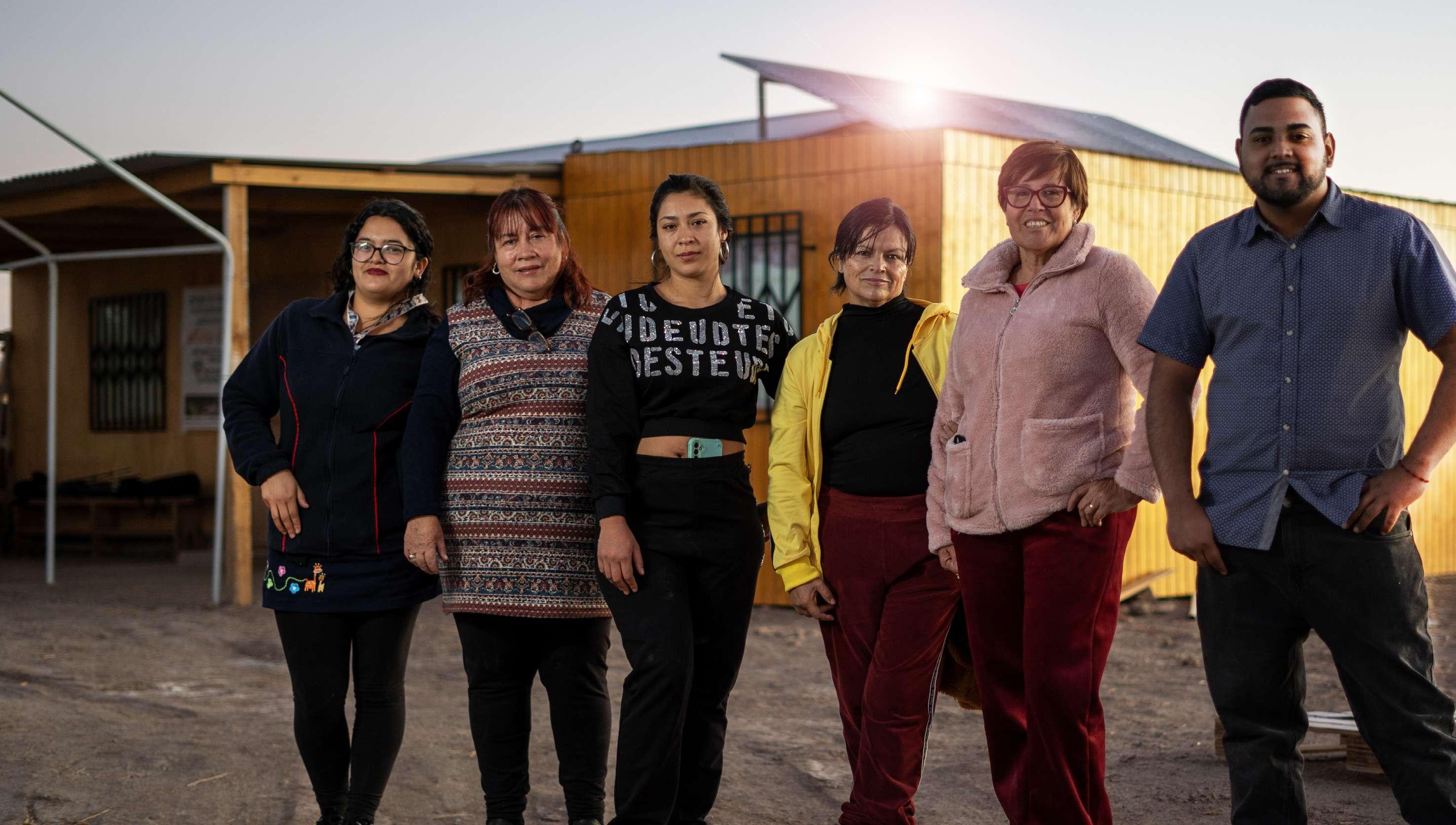
As part of the communities in which we operate, contributing to their socio-economic development (SED) remains a priority.
We strive to generate long-term value and enhance the wellbeing of our neighbours, while also identifying, evaluating, mitigating and, where feasible, avoiding any potential adverse effects of our projects on these communities and their cultures.
Through targeted community engagement and SED initiatives, we take a proactive approach to community relations, initiating dialogues and taking action to foster a positive relationship with, and impact on, the communities.
Our SED programme focuses on enhancing the local community through solar, preserving the local environment and educating the problem solvers of tomorrow.
In 2024, we implemented 47 community initiatives, with charitable giving and community investment of over EUR 417,000.
Noting the urgency to nurture a new generation of environmentally-conscious citizens to drive change, education continues to be an important impact pillar for Sonnedix. Through our 2030 Sustainability Strategy, we have committed to impact one million learners by 2030.
Through our educational programmes, including SolQuest and the Sonnedix Sustainability Academy and other educational initiatives, we reached approximately 300,000 learners in 2024. Our impact on education has been recognised by the Women and Diversity in Law Awards, where Sonnedix won the Environmental Sustainability Initiative of the Year category as a result of contributions made through our Sustainability Academy.
Good stakeholder engagement is essential for the successful management of risks and impacts on our projects. Sonnedix’s Community and Stakeholder Engagement Standard sets the standard for our projects to avoid or minimise adverse impacts on our stakeholders, including local communities. Our grievance mechanism is in place to raise, assess and address any concerns our communities may have.
Another key focus area for us is providing employment opportunities for local communities through our projects. Where feasible, we include requirements for local labour in new contracts with contractors building or operating on our behalf.
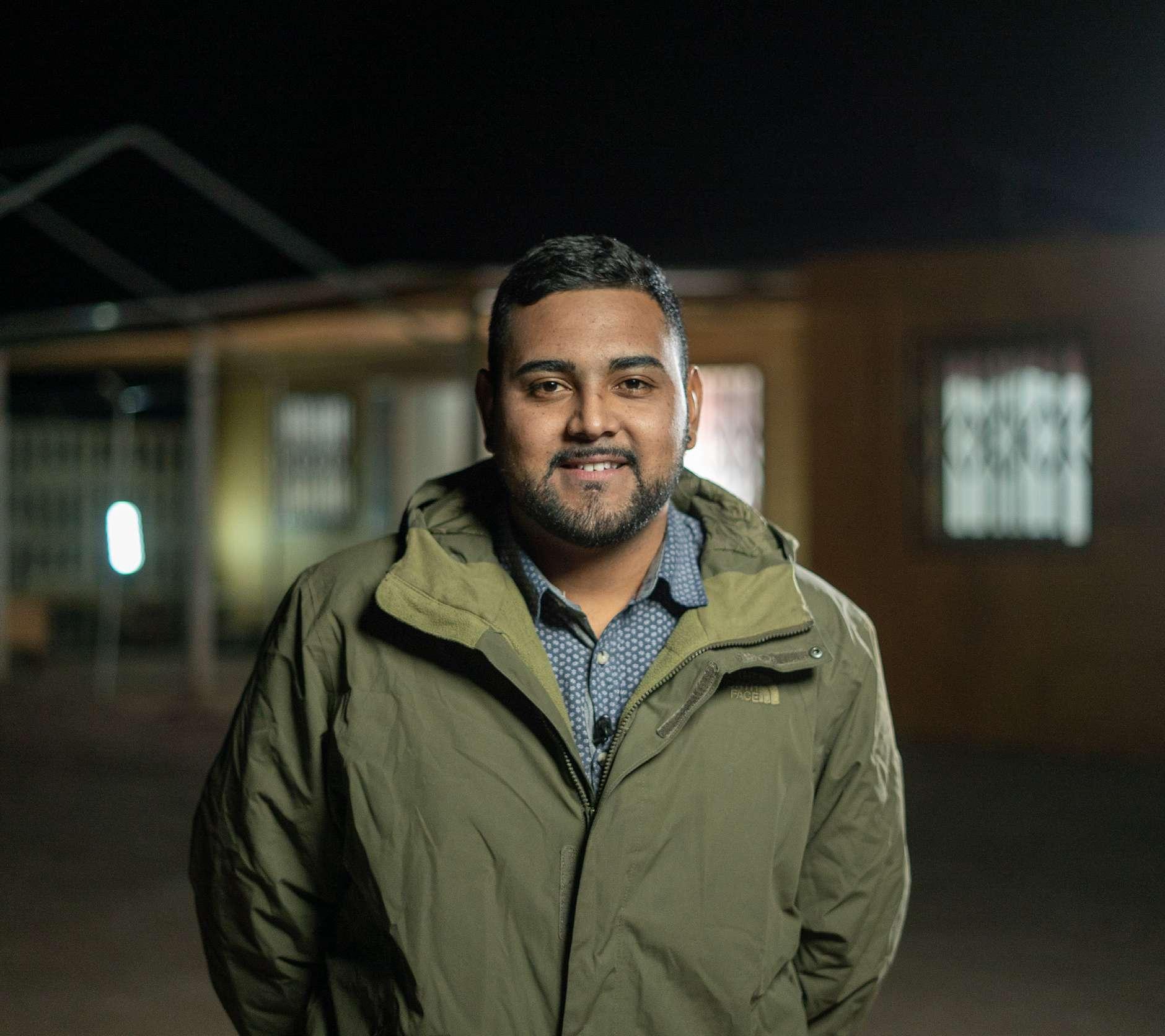
In light of severe flooding towards the end of 2024, we provided crucial support where it was most needed.
In Poland, one of our local team quickly visited the affected communities and identified the most urgent needs. We responded by providing equipment to aid the recovery efforts such as power generators, air dryers for flooded homes, space heaters, pressure washers and cleaning supplies. The local mayors expressed their heartfelt thanks on behalf of the local government and affected residents for the timely support from our team.
In Spain, our team worked with local volunteers and organisations, initiating several actions to help with relief efforts including: coordinating cleaning suppliers to the most affected areas, providing water pumps and heaters to remove floodwater from buildings, donating educational materials to Fevadis to support children with intellectual disabilities, all ensuring that those most vulnerable received the help they needed. In addition, a group of Sonnedix employees personally assisted in the relief efforts.
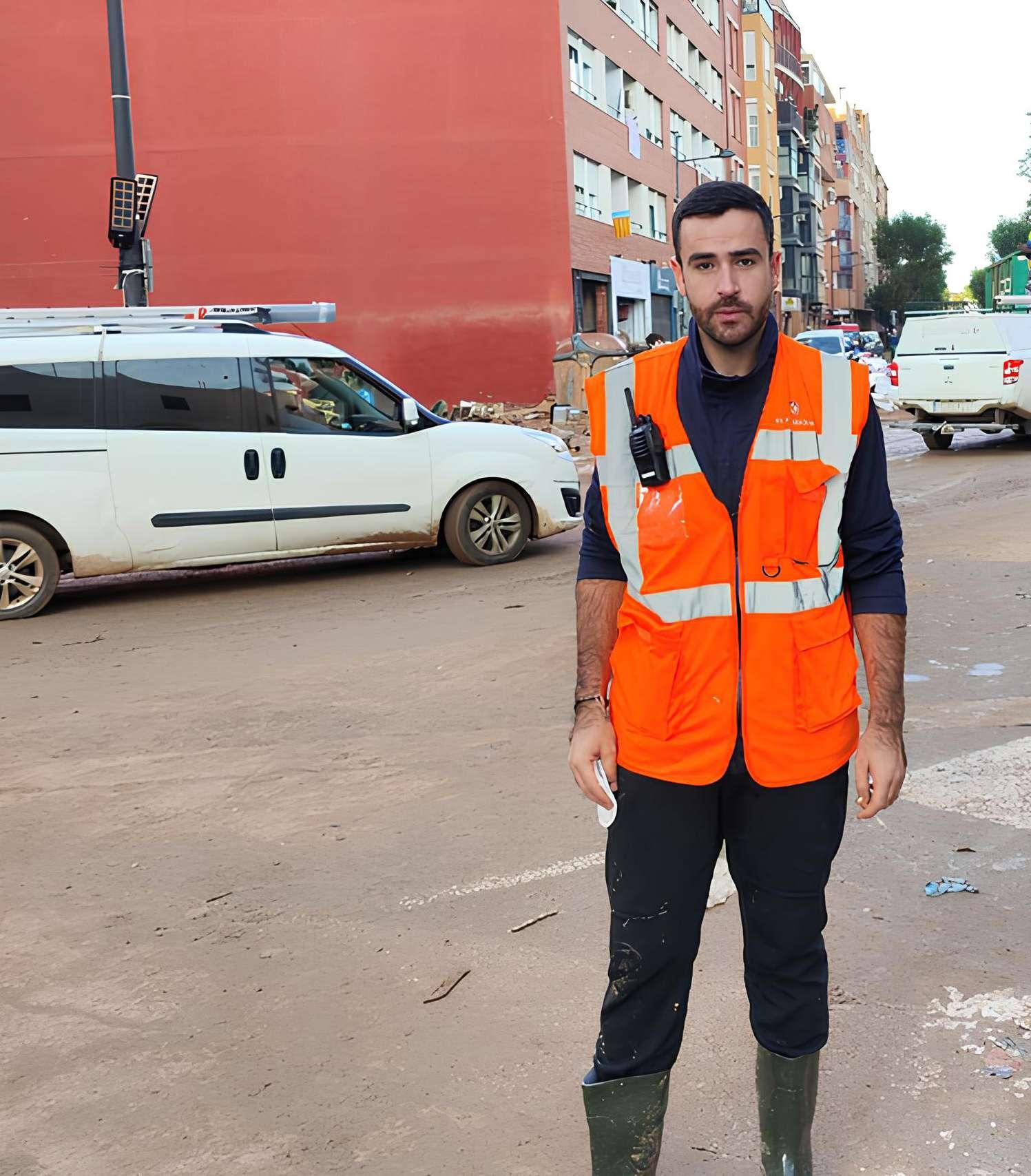
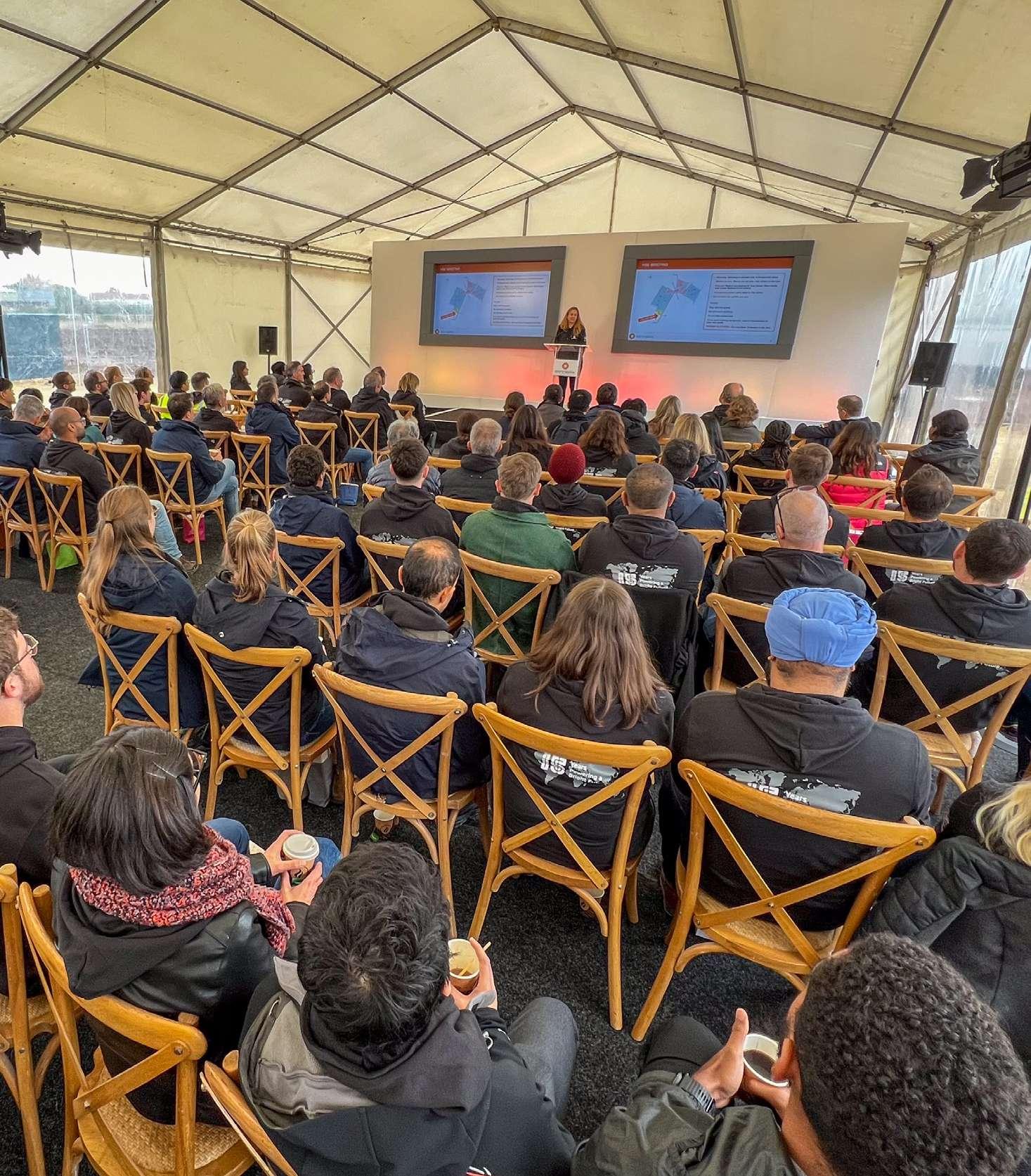
We have successfully achieved the UNEF Seal of Excellence in Sustainability for our site El Carrascal in Spain, an award created by the Union Española Fotovoltaica given to companies that demonstrate best practices in sustainability. The programme’s core focus includes creating local value through employment, training and environmental preservation.
As part of the programme we provided direct employment opportunities for local residents, participated in a revegetation project on an old landfill site and organised information sessions in the local town, among others.

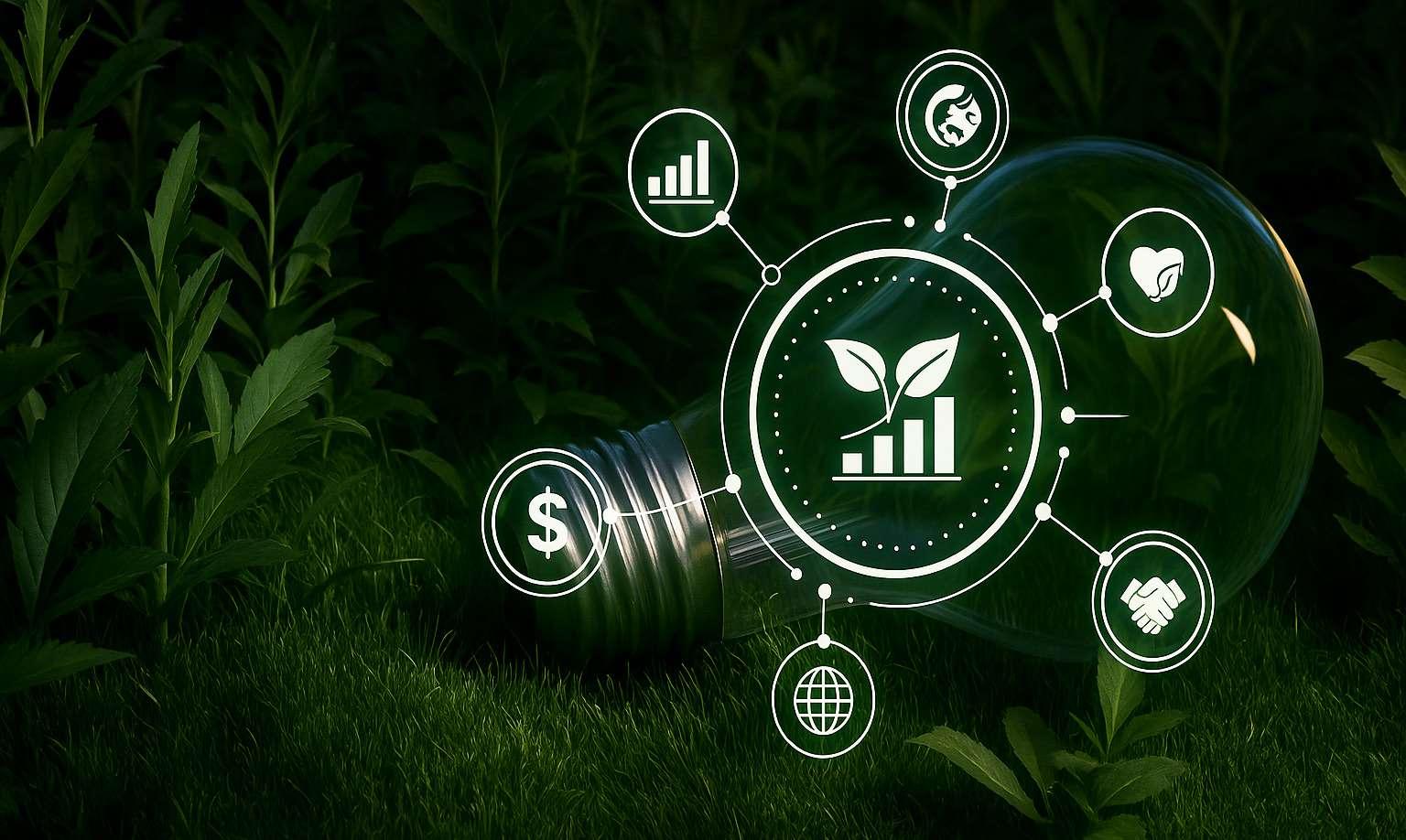
Our commitment: Scale up crossfunctional collaboration and accountability for priority sustainability topics, embed sustainability-linked performance goals for senior executives and provide Board-level training around material topics.
Our corporate governance framework is part of our overarching ESG framework. Our governance framework is overseen by the Board of Directors. The Board promotes the creation of sustainable stakeholder value within the framework of culture, systems and control. This can be expressed as three pillars:
The Board’s governance framework includes a clear list of matters that are specifically reserved to the Board for approval. It also includes a delegation of specific powers to committees (described further below), each of which have their own terms of reference.
Long-term, effective and transparent decision-making at Board and Senior Leadership Team levels.
Strong controls and risk management framework: continuous assessment and management of Sonnedix assurance through internal controls and enterprise risk management framework.
Tone from the top: a strong purpose and a values-driven culture underpinned by our ethics and compliance programme.
There is a clear separation of responsibility between the Board and the operating committee, called the Senior Leadership Team (SLT), and a clear division of responsibility between the non-executive and executive directors. The Board and SLT together agree and deliver the Sonnedix strategy and goals, and shape the culture, providing longterm success for all stakeholders.
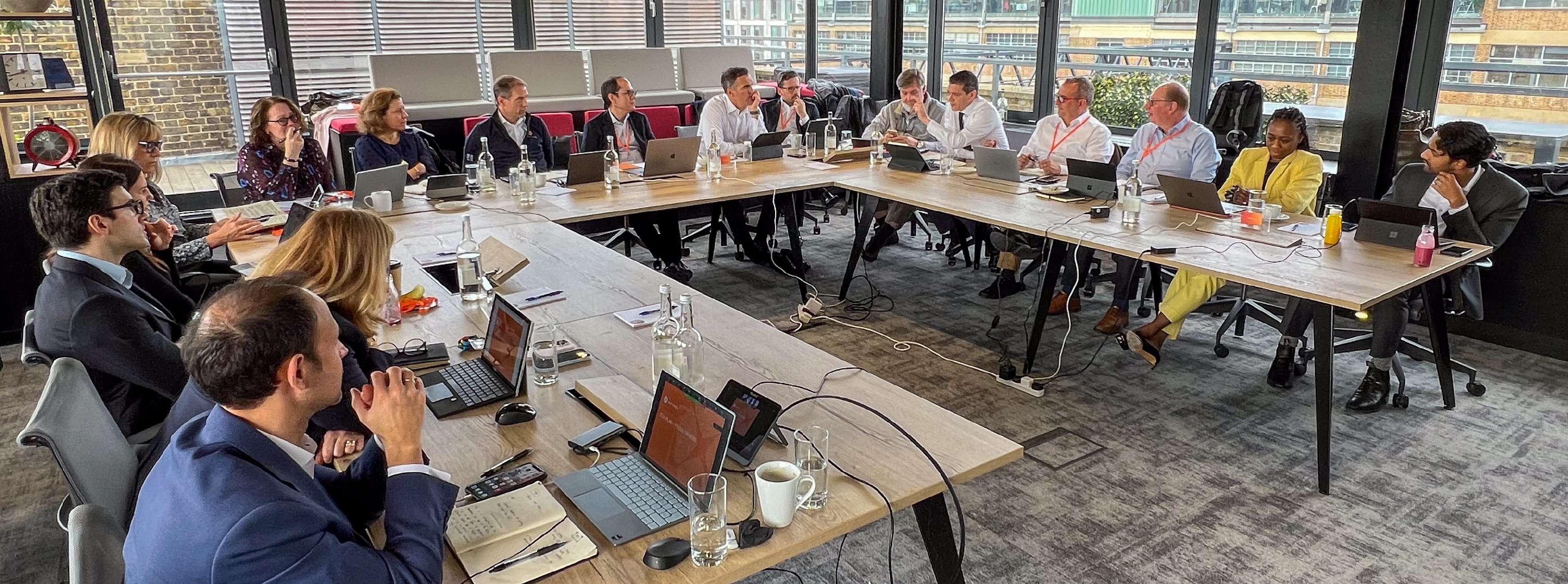
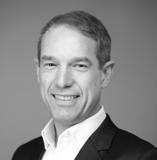



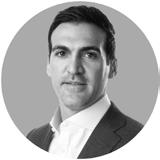

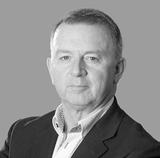
Axel Thiemann
Director and Chief Executive Officer
Carlos Guinand
Director and Executive Chairman
Susan E. Gonzalez
Independent Non-Executive Director
Petros Kitsos
Independent Non-Executive Director
Mark Scarsella
Non-Executive Director
Karen J. Plessinger
Independent Non-Executive Director
Kevin McCullough
Independent Non-Executive Director
The Board consists of the Executive Chairman, Chief Executive Officer (CEO) and five non-executive directors. It reflects a diverse range of backgrounds, skills and experience. Profiles of our Directors can be found here . The Directors bring a breadth of perspectives in all aspects of renewable energy to drive the long-term strategy of Sonnedix and create value for the Group and its stakeholders. Our Board works together to ensure that Sonnedix continues to contribute to the global energy transition while growing sustainably, profitably and responsibly.
In 2024, Marko Josipovic and Anders Dahl resigned as Directors, and Mark Scarsella and Kevin McCullough were appointed as new Directors.
6.4 yrs median Director tenure
The Board is responsible for approving the Sonnedix strategy and overseeing its implementation to ensure the long-term success of the business for the benefit of all of its stakeholders.
All committees are appointed by the Board and meet quarterly, except for the Investment Committee which meets as often as required. The committees report regularly to the full Board.
Audit and Risk Committee
Oversees the Group audit, enterprise risk management and controls, and the Group’s ethics and compliance programme.
Assists the Board with the design and implementation of a consistent and robust HR policy and reviewing certain compensation matters.
Investment Committee
Reviews and approves certain categories of transactions in the intervals between Board meetings.
Performance Committee
Reviews the operational and financial performance of the Group and makes recommendations to the Board on improving the company’s business performance.
The SLT is responsible for the operation of the business, leads our people and sets and delivers the overarching business priorities and goals.
Development Committee
Monitors the Group’s project development activities, and makes recommendations to the Board on the Group’s development budget.
Our SLT consists of the Executive Chairman, CEO, Chief Commercial Officer (appointed in February 2025), Chief Digital Officer (appointed in January 2025), Chief Financial Officer, Chief Growth Officer, Chief Operating Officer, Chief People Officer, and General Counsel. Profiles of our Senior Leadership Team can be found here
The SLT drives implementation of our corporate strategy and performance, leads our people and is responsible for the day-to-day management of the business. Our Executive Chairman leads the Board of Directors, supervising its functioning and governance. The Executive Chairman develops the Group’s strategy together with the CEO and the Board. Our CEO is responsible for execution of the Group’s strategy and overseeing the day-to-day operations and management of Sonnedix with the SLT.
As of early 2025, we welcomed two new members to the SLT - a Chief Commercial Officer and a Chief Digital Officer. These roles reflect two key focus areas for our business, helping us to deliver our customer-led strategy and to digitalise our workplace and operations.
Our Board conducts effectiveness reviews annually to evaluate its performance. In the 2024 Board effectiveness survey, Board members evaluated their performance across several areas (including ESG), with results showing particular strengths in committees, culture and the Board Chair.
KEY MATTERS CONSIDERED BY THE BOARD
In 2024, our Board met four times to discuss and approve a wide range of matters. These included the Group’s capital structure, material transactions and financings, as well as key topics such as digitalisation and employee engagement. With regards to sustainability matters, the Board received a number of presentations on the Group’s 2023 Sustainability Report, 2040 Net Zero Roadmap, and the Group’s approach to Health, Safety & Environment. The Board also reviewed and approved Sonnedix’s annual Modern Slavery Statement in June.
BOARD TRAINING
Our Board regularly undertakes training to stay current with critical governance topics. In 2024, Board members attended training to prepare for the environmental metric limited assurance and received deep dives in areas of government and regulatory affairs and Battery Energy Storage Systems.
SUSTAINABILITY-LINKED
At the C-suite level, the CEO and all C-suite members have remuneration linked to corporate POIs. In 2024, the delivery and integration of the refreshed Sustainability Strategy was a standalone POI. Additionally, certain roles have specific ESG-related targets linked to their bonus e.g. DEI and HSE.
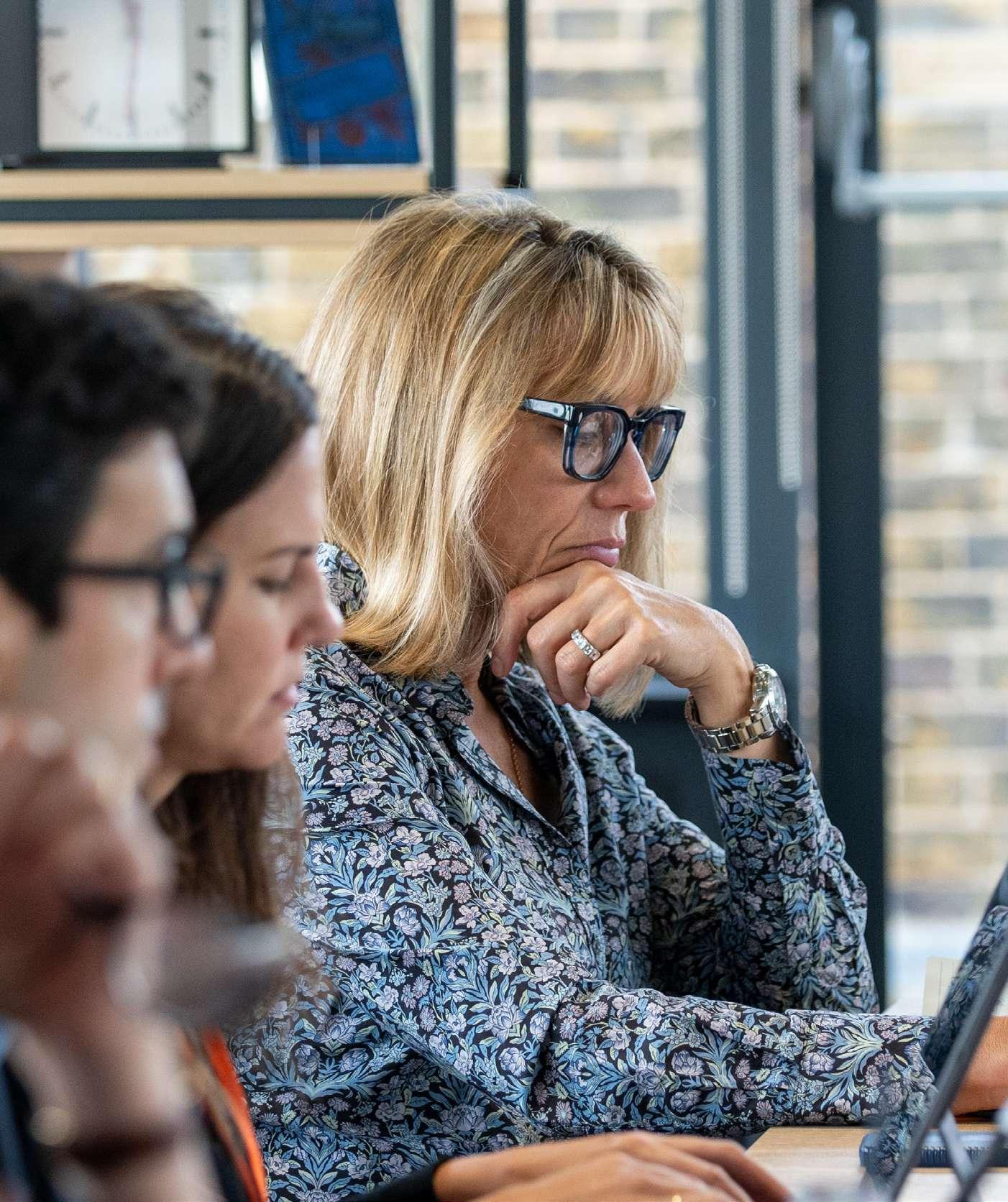

Our commitment: Continue to build and protect stakeholder trust through a robust corporate governance framework, enterprisewide risk management and effective ethics and compliance programmes. Integrate alignment of non-financial reporting with financial accounting.
The Sonnedix governance framework includes a number of policies that ensure our business is compliant with all applicable standards, laws and regulations. It provides employees and partners with clear guidance on our expectations. In addition, the management of corporate risk is an essential component of sustainable growth at Sonnedix, ensuring that, as we grow, potential risks to the business and employees are assessed, managed and mitigated.
The Audit and Risk Committee (ARC) oversees Sonnedix’s approach to controls and risk management. It receives reports on the production of the Company’s Financial Statements and oversees the Group audit. The ARC also regularly reviews company policies to ensure that they reflect best practice and applicable law and regulation.
During 2024, we reviewed our enterprise-wide risk management framework and processes, focusing on how we measure, monitor and report our corporate risks within Sonnedix. A key component of this work was to identify the appropriate valuation methodology with a view to updating our calibration of risk materiality in view of Sonnedix’s continued growth and changes to the markets and broader environment.
With the initial assessment complete, we will refine our risk heat map and internal reporting accordingly in 2025.
During the year, we worked with key internal stakeholders to embed topic-specific RACI charts to support the delivery of our ESG KPIs. Whilst we already had an internal audit process in place for our environmental KPIs, as of 2025 our in-market Finance team members will be involved in those audits, bringing their financial auditing expertise to help to align the two standalone processes.
As part of this continuous alignment, we also began leveraging the relationship with our external financial auditor to provide assurance over our Double Materiality Assessment, detailed on pages 12 to 13 . Whilst we no longer fall within scope to comply with the Corporate Sustainability Reporting Directive (CSRD) in 2024, we have used the existing European Sustainability Reporting Standards (ESRS) to begin enhancing some of our disclosures within this report, to aid transparency in a phased way.
Our ESG Strategy refresh in 2023 sought to focus more broadly on building stakeholder trust through our effective ethics and compliance programme and robust enterprise risk management.
Our Ethics and Compliance framework is a structured programme involving policies, procedures, mandatory training and monitoring mechanisms designed to promote ethical behaviour and prevent misconduct – all underpinned by the Sonnedix value of ‘Do The Right Thing’. Key elements of the framework include ‘speak up’, anti-bribery and corruption, third-party risk management, data privacy, the ethical use of artificial intelligence, and investigations, as well as regulatory compliance across different functions from Finance to Health & Safety and Operations. In 2024, our Ethics and Compliance function embraced digitisation and introduced a global third-party risk management tool to enhance our compliance due diligence process when selecting the right business partners for Sonnedix.
Additionally, we introduced the Speak Up Ethico hotline and web portal, providing staff and external stakeholders with a confidential channel to report concerns regarding potential wrongdoing in the workplace. This initiative reinforces our commitment to ethical business practices by facilitating a ‘speak up’ culture in the business, ensuring matters are dealt with appropriately without fear of retaliation. A refreshed Code of Business Ethics will be rolled out across the business during 2025.
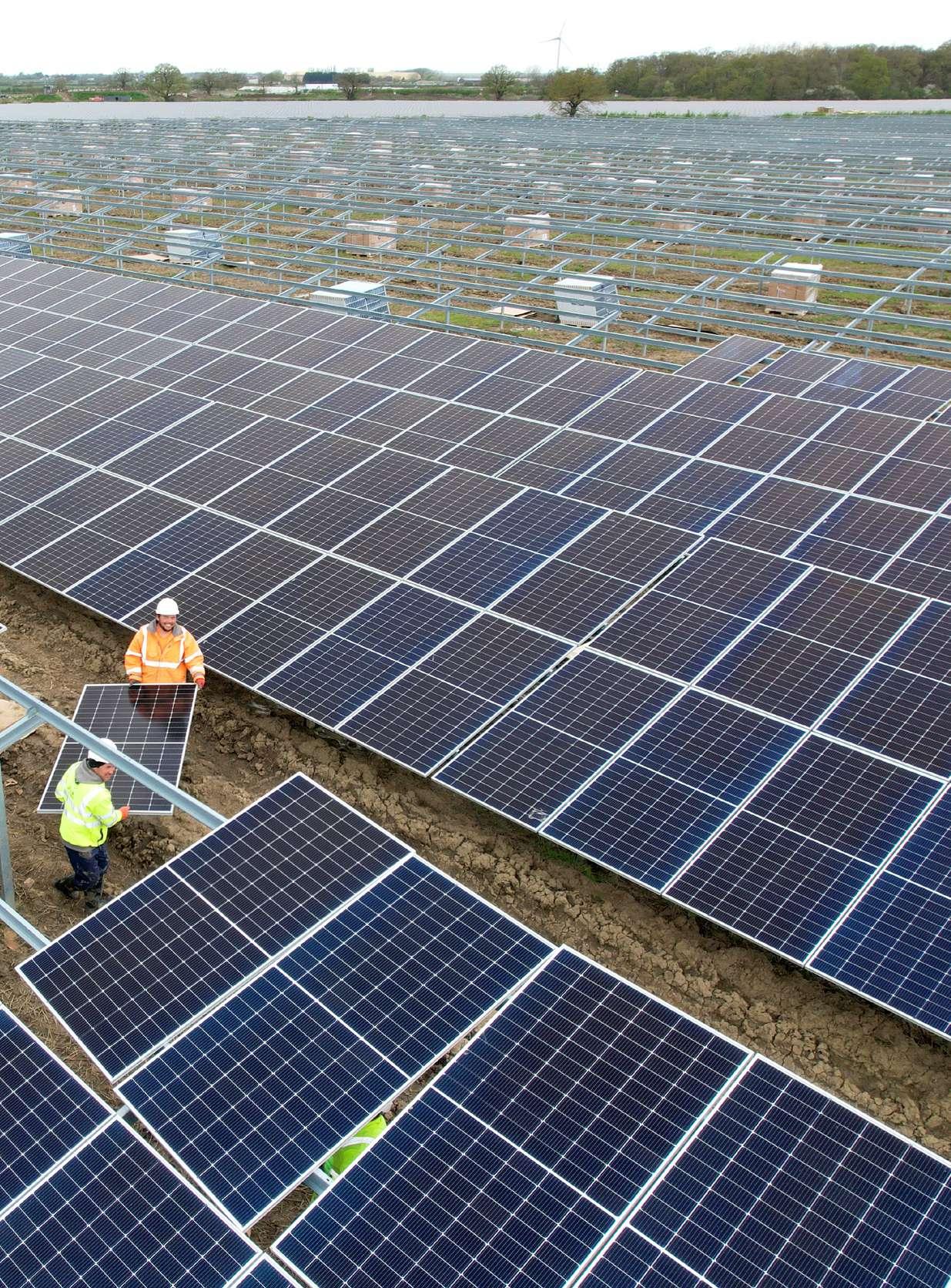
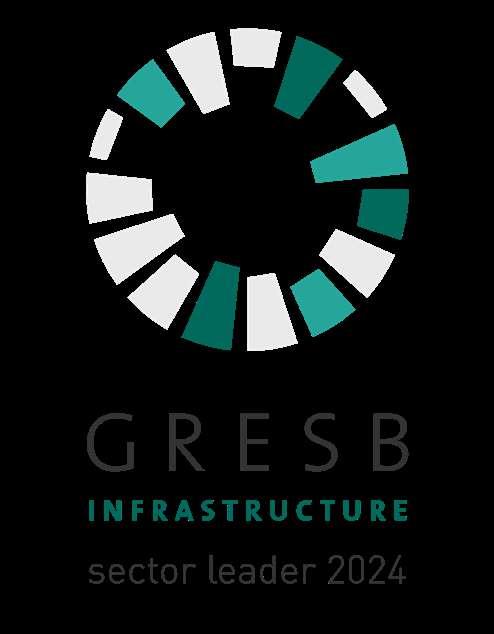
For the seventh consecutive year, Sonnedix achieved a fivestar rating in the GRESB, being named the Infrastructure Sector Leader. GRESB continues to be a marker of trust for those in and outside the sector.
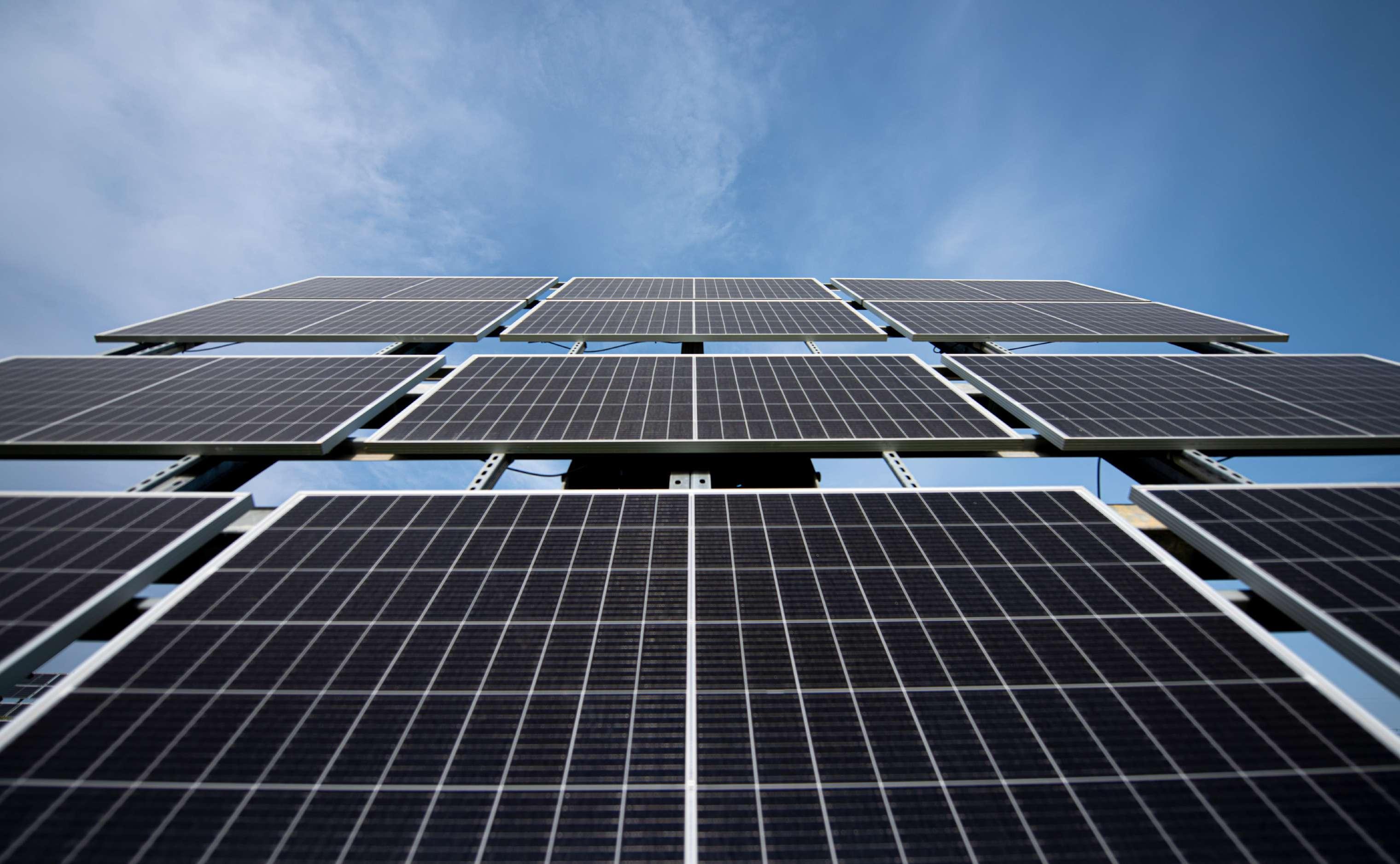

This report provides an overview of our progress in 2024 towards the implementation of our Sustainability Strategy and ESG Policies and Standards. We intend to provide clear, balanced and concise information and accurate, reliable and comparable data to satisfy the information needs of our stakeholders in a timely manner.
In 2024, we undertook our first Double Materiality Assessment (DMA) (see pages 12 to 13 ) in alignment with the requirements of the Corporate Sustainability Reporting Directive (CSRD). Whilst we do not fall within scope to comply with the CSRD in 2024/2025, we used the findings of the DMA to further enhance the disclosure of material topics within this report, to aid transparency in a phased way. By streamlining on material topics, we have laid a strong foundation for the preparation of our integrated report, set to be published in the coming years.
Unless otherwise stated, the information and all performance indicators contained in this report refer to the activities carried out during 2024 (calendar year) by the assets, offices and companies under the control of Sonnedix Group. These activities have a social, environmental, economic and governance impact both inside and outside the organisation’s perimeter. Where relevant, historic data has been included to enable year-to-year comparison.
In 2024, Sonnedix underwent limited assurance for a number of key performance Indicators. Our Basis of Preparation, along with our ESG Policies and Standards and Climate Transition Plan, are all publicly available on our website: www.sonnedix.com .
At the end of 2024, we implemented a new Computerised Maintenance Management System (CMMS) for more efficient, centralised collection and management of our sustainability metrics. In 2025, we will be focusing on assessing the compatibility of digital solutions for some of our data collection, with a view to further streamline the existing process.
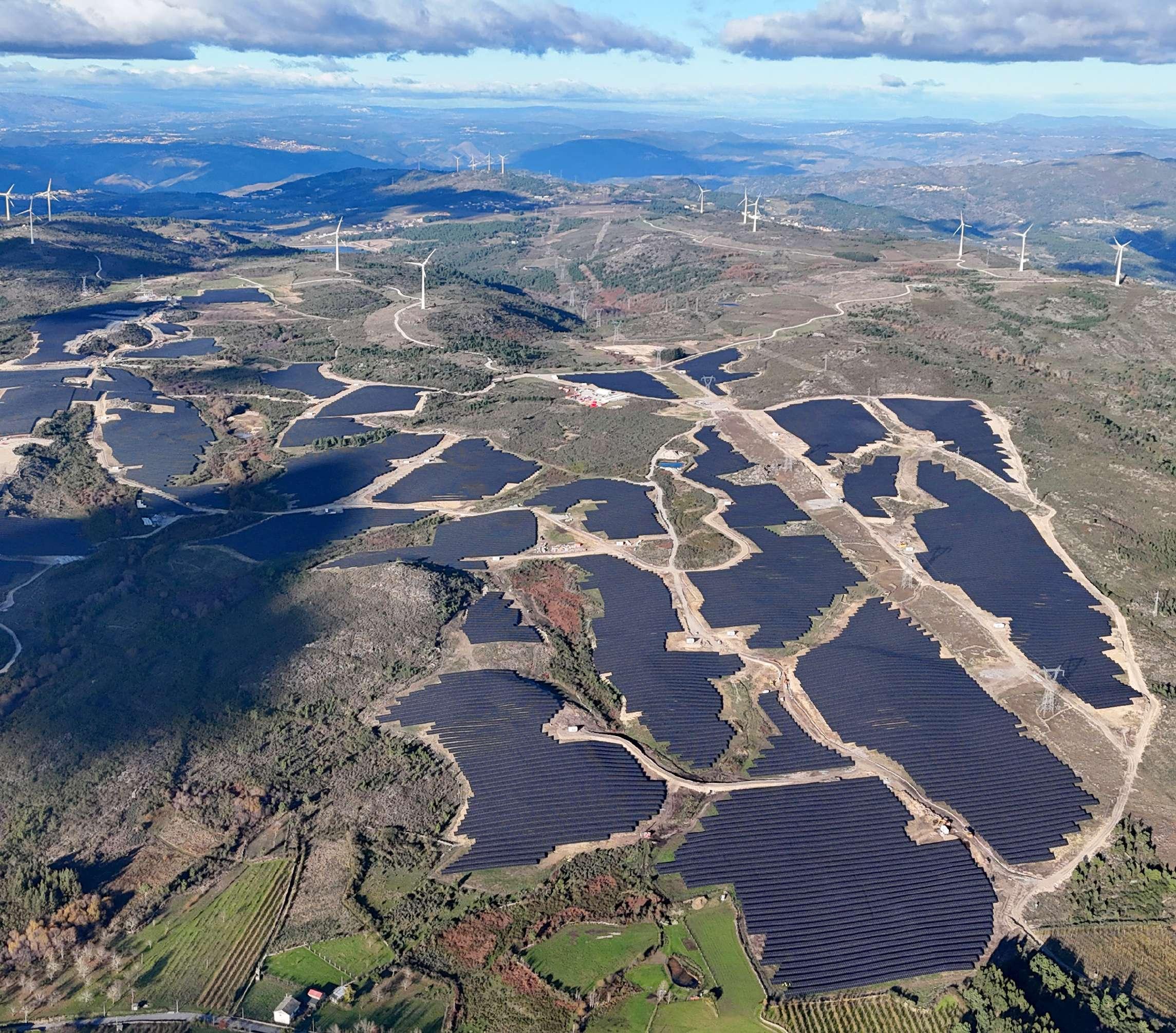
Creating and maintaining a long-term and mutually beneficial relationship with our stakeholders is key to Sonnedix. As such, we have identified our key stakeholders and aim to keep bi-directional, truthful and meaningful communications with them to gain deeper understanding of perspectives, concerns and goals.
• Conducting surveys to gather feedback and insights.
• Organising internal network groups to promote collaboration and communication.
Employees
Sonnedix’s people are at the heart of its success.
The company aims to achieve its goals with positive energy and a sense of ownership, while upholding honesty and integrity.
• Implementing programmes focused on employee development and wellbeing.
• Offering personal development opportunities to support career growth.
• Promoting a culture of ‘One Team’ to enhance teamwork and unity.
We work with our neighbours on targeted socio-economic development (SED) initiatives and aim to inspire the next generation of problem solvers with our educational programmes.
• Targeted community engagement and SED initiatives.
• Community consultations.
• Funding and donations/local investment.
• Sol Quest – immersive learning experience (partnerships with schools and science museums).
• School and university visits and scholarship funding.
Sonnedix works with a number of suppliers and contractors across all of its markets to plan, construct and operate its assets.
By collaborating closely, we are able to decrease potential supply risk and help support the development and alignment of ESG initiatives, such as net zero.
Sonnedix relies on its financial stakeholders to grow its business and invest in long-term outcomes.
We actively engage with our shareholders to share updates on performance and engage on key decisions throughout the year in dedicated fora.
• Collaboration and support of industry-wide supply chain stewardship initiatives.
• Supplier screenings and follow up meetings.
• Supplier quality and ESG audits.
• Quarterly cohort meetings for key functional leads.
• Annual ESG reporting and disclosure engagement.
• Regular communication (briefings).
• Board meetings and investor events.
Promoting gender equity with a focus on career development
Strengthening our inclusive culture
Robust employer brand
Curious learners
Safety culture
Socio-economic development
Stakeholder engagement and local job creation
Minimising negative impacts and driving collaboration
Responsible supply chain
Human and labour rights
Forced labour in the renewables supply chain
Sonnedix is subject to local and national regulation in each market which can impact our current or future financial position, operations and cash flow.
• Regulatory function engages key regulators, legislators and policy makers to advocate for policy and a regulatory environment supporting long term investment and growth for renewable energy, hybridisation and flexibility solutions.
• Engagement via trade associations and with industry peers to shape, drive and support common engagement objectives.
We build and maintain relationships with regulatory and government bodies as well as industry associations to preserve our ability to deliver on our purpose in the long term. Climate Transition Plan
• Leadership positions held across major trade associations to guide strategic direction as well as through the seats our Board members hold (i.e. Solar Power Europe, Unión Española Fotovoltaica, Enerplan).
Customers are vital to Sonnedix’s purpose as they are the driving force behind our ability to deliver clean, renewable energy solutions globally.
Customer needs drive innovation, encouraging Sonnedix to develop tailored energy solutions, integrate storage and optimise our portfolio.
• Ongoing collaboration with electricity market regulators focusing on engaging in electricity markets to sell energy, participate in auctions or secure contracts like Power Purchase Agreements (PPAs).
• Engagement with direct customers to understand their needs and evolve our offering to support long-term growth.
Our offer
Global portfolio


At Sonnedix, we offer a wide range of benefits and learning and development opportunities to ensure our One Team grows and develops, both personally and professionally, as the business does. As the company expands, we provide opportunities for career advancement, fostering an inclusive, international working culture with a diverse team of friendly professionals from around the world. Our benefits include:
Hybrid working practices: A commitment to flexibility, allowing hybrid working and the ability to work from elsewhere for up to six weeks a year.
Generous leave policies: Generous annual leave allocation with an additional four weeks of discretionary unpaid leave, paid parental leave and support for carers.
Wellbeing support: Comprehensive support for financial, social, mental and physical wellbeing, including seminars, resources and access to confidential counselling.
Shorter summer hours: Enjoy shorter Friday hours during the summer months (July/August for northern hemisphere and January/February in southern hemisphere).
Training and development: The Sonnedix Academy offers a range of training and development opportunities, including professional development, management and leadership programmes, technical training, essential skills, DEI and mentorship programmes.
DEI: DEI Manifesto, yearly DEI Summit, employee-led One Team Network groups based on shared identities, interests, backgrounds and life experiences, extended paid maternity, paternity and parental leave.
Office equipment allowance: An allowance for office equipment to ensure a productive and accessible home-working environment.
Fantastic office environments: State-of-the-art office spaces designed for productivity and collaboration.
Social and team-building events: Off-site events, team socials and global celebrations that cross functions and geographies, as well as employee-led One Team Network groups based on shared identities, interests, backgrounds and life experiences.
Community engagement: A comprehensive ESG agenda, volunteering days and charity events.
Additional benefits: Depending on location, benefits may include private healthcare, complementary pensions, income protection/life insurance and extended paid parental leave.
At Sonnedix, we are committed to creating a supportive and enriching environment where every team member can thrive.
The table below summarises our health and safety-related key performance indicators for our employees and contractors during the 2022 - 2024 period:
MW - Megawatt
GW - Gigawatt
TW - Terawatt
GRESB - Global Real Estate Sustainability Benchmark
BESS - Battery Energy Storage System
CMMS - Computerised Maintenance Management System
DMA - Double Materiality Assessment
ESRS - European Sustainability Reporting Standards
CSRD - Corporate Sustainability Reporting Directive
H&S - Health and Safety
GHG - Greenhouse gases
TCFD - Task Force on Climate-related Financial Disclosures
DEI - Diversity, Equity, Inclusion
ESG - Environment, Social, Governance
SDGs - Sustainable Development Goals
HSE - Health, Safety and Environment
IPCC - Intergovernmental Panel on Climate Change
RCP - Representative Concentration Pathways
AR5 - Fifth Assessment Report
SSPs - Shared Social Economic Pathways
CO 2e - Carbon dioxide equivalent
YoY - Year-over-year
MB - Market-based
ESIA - Environmental and Social Impact Assessment
KPI - Key Performance Indicator
LTIFR - Lost time injury frequency rate
TRIR - Total recordable incident rate
O&M - Operation and Maintenance
EPC - Engineering, Procurement and Construction
SSI - Solar Stewardship Initiative
SED - Socio-economic development
SLT - Senior Leadership Team
POI - Portfolio of Initiatives
ARC - Audit and Risk Committee
RACI - Responsible, Accountable, Consulted, and Informed